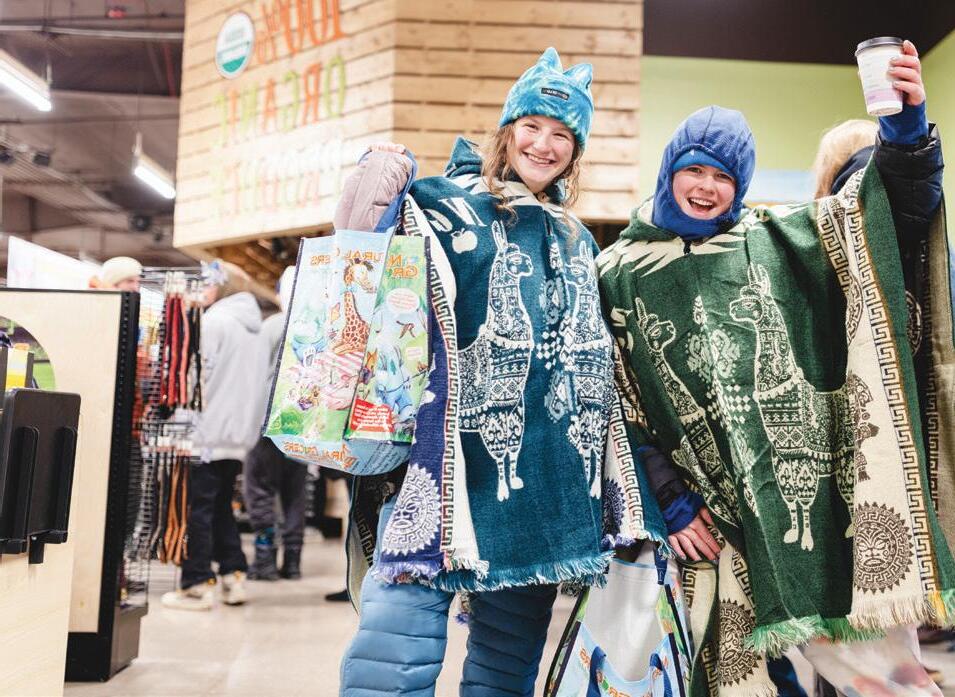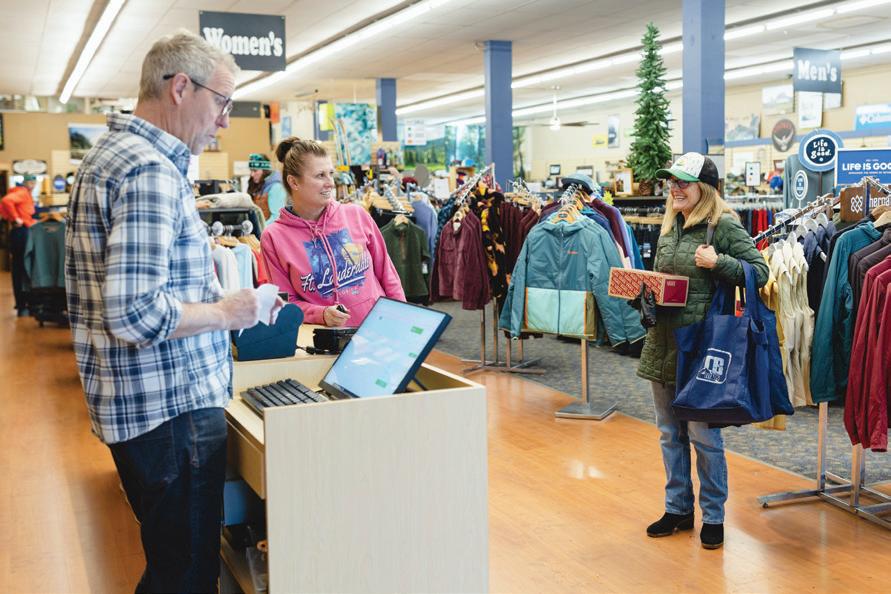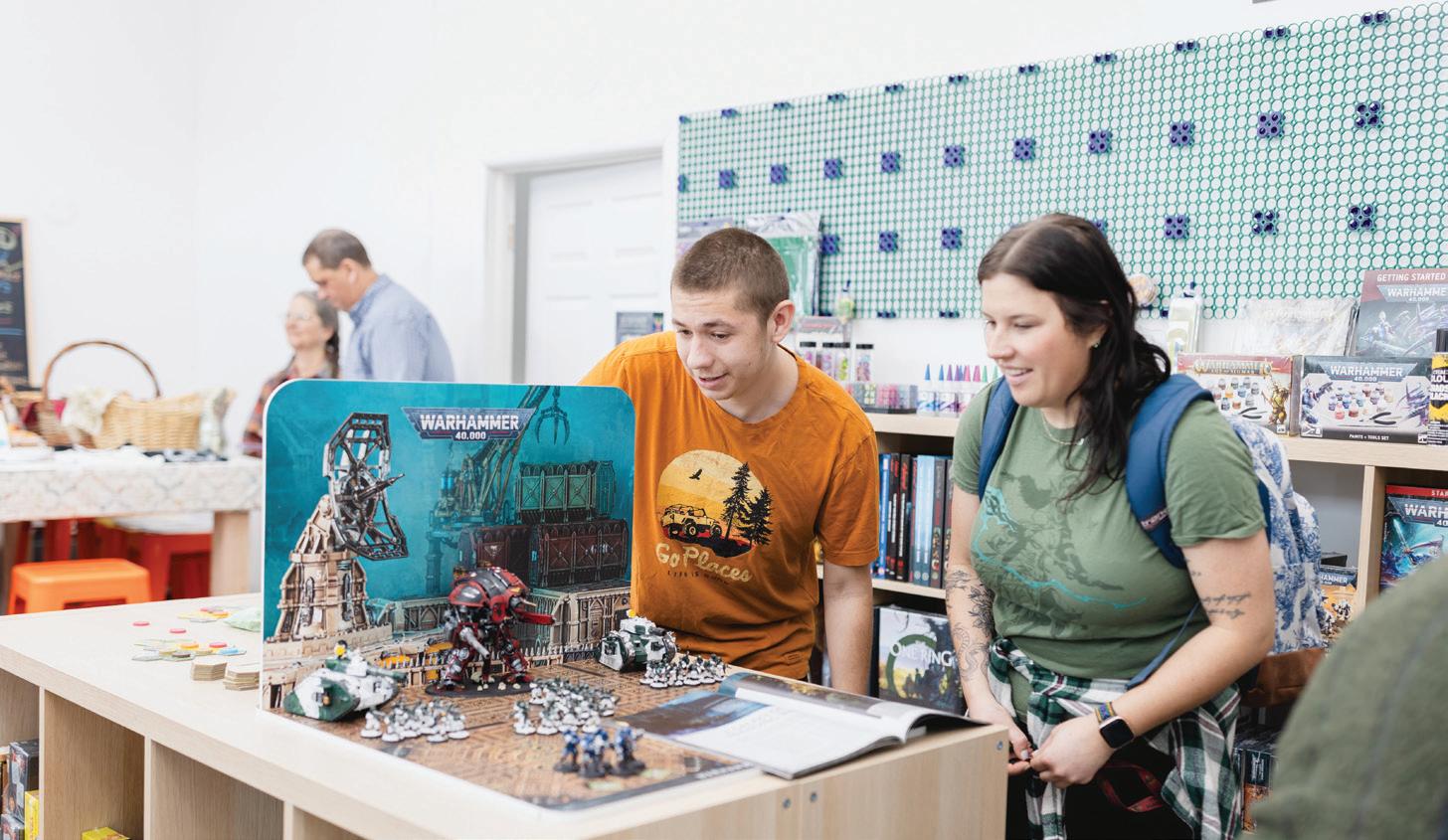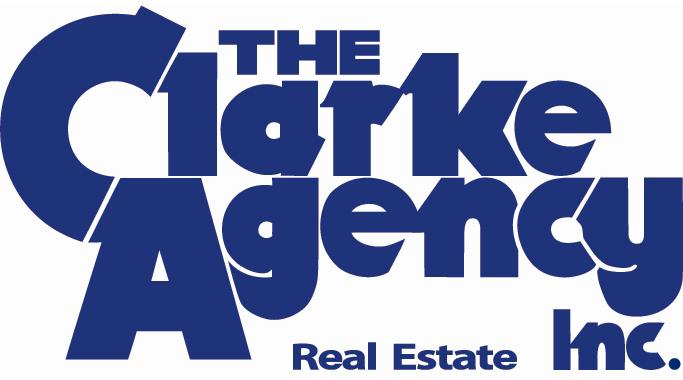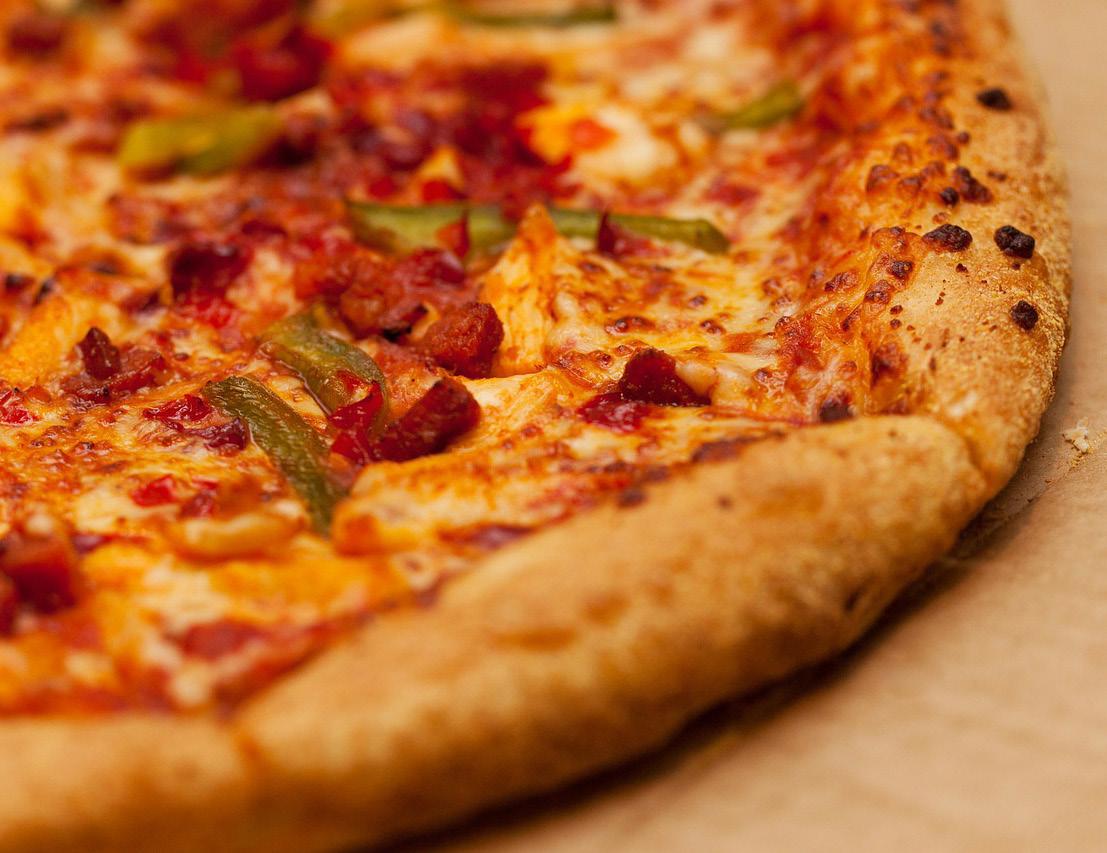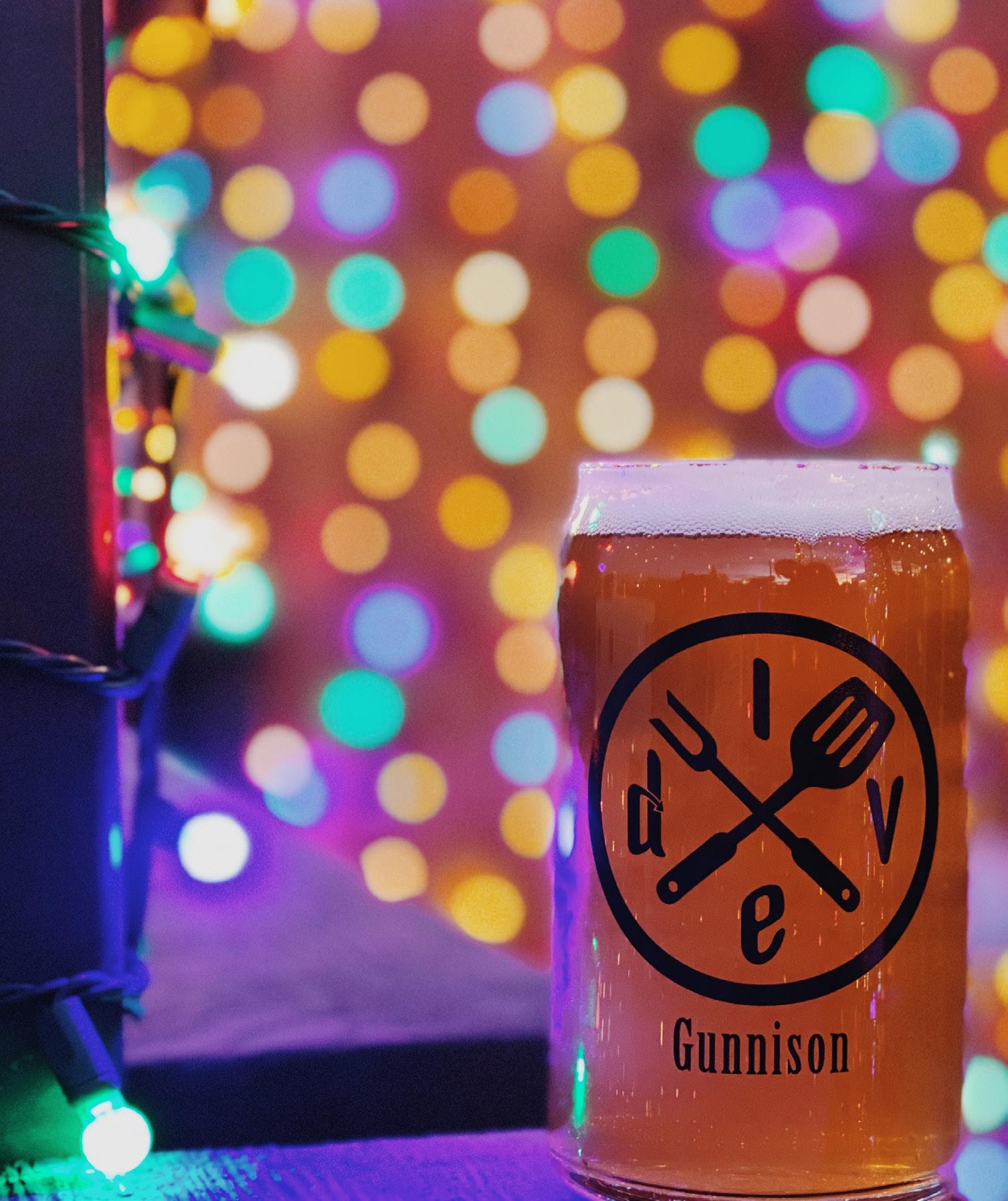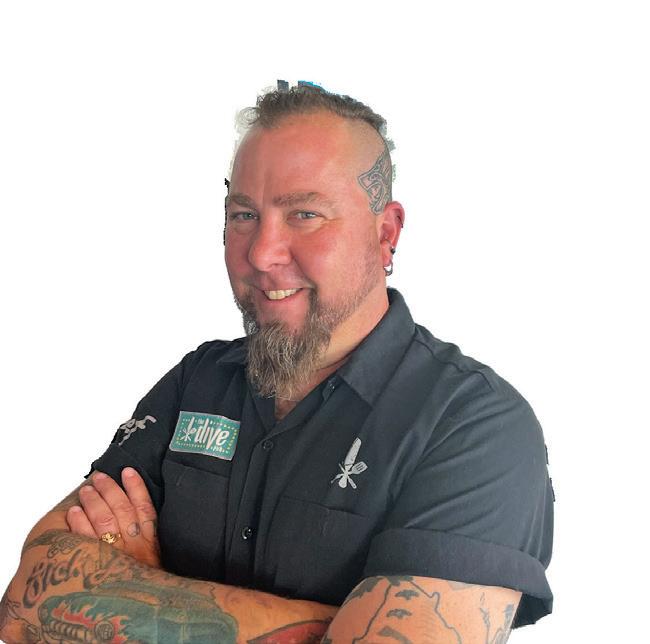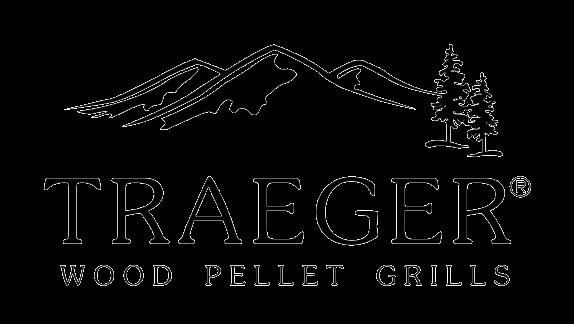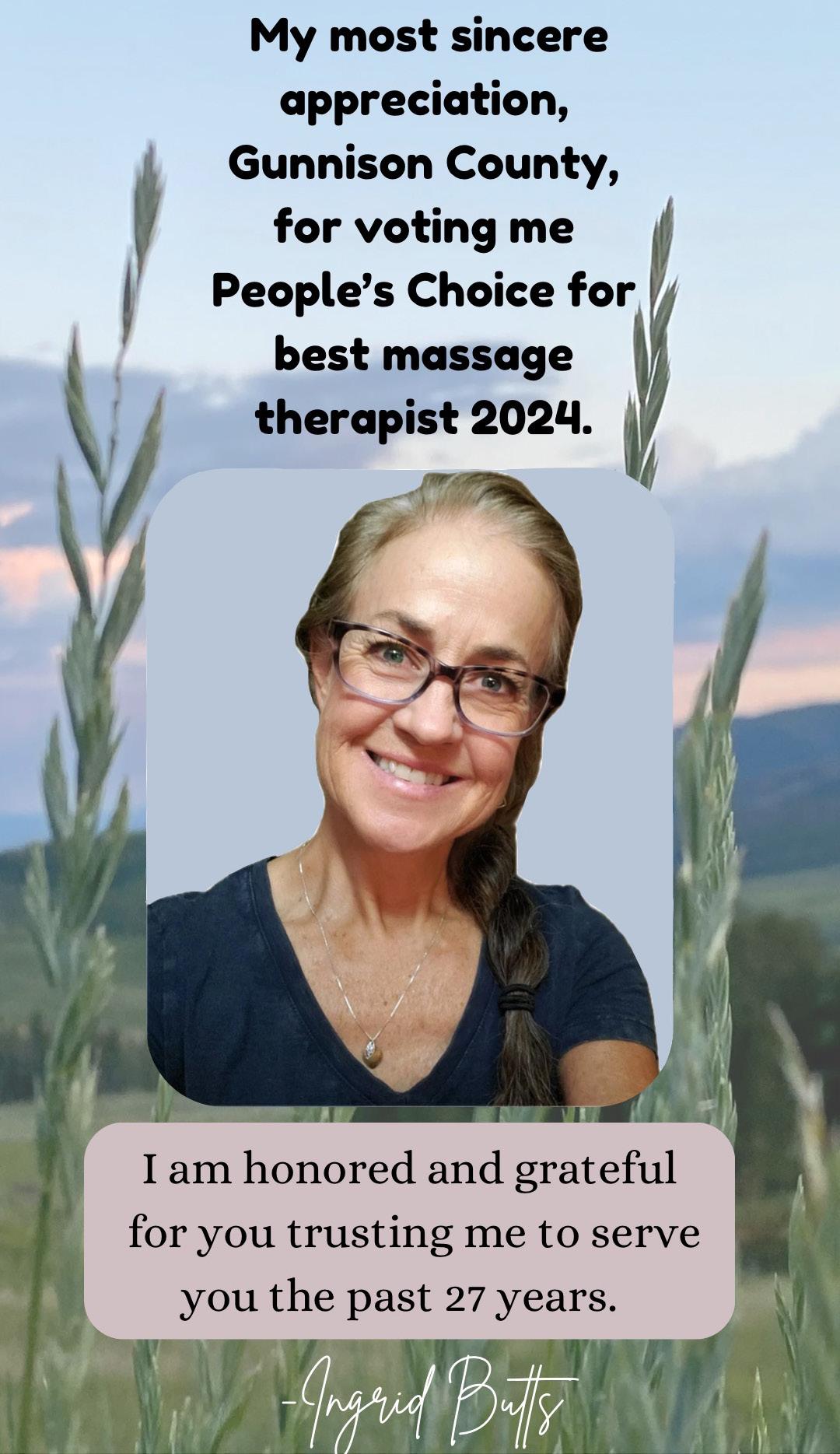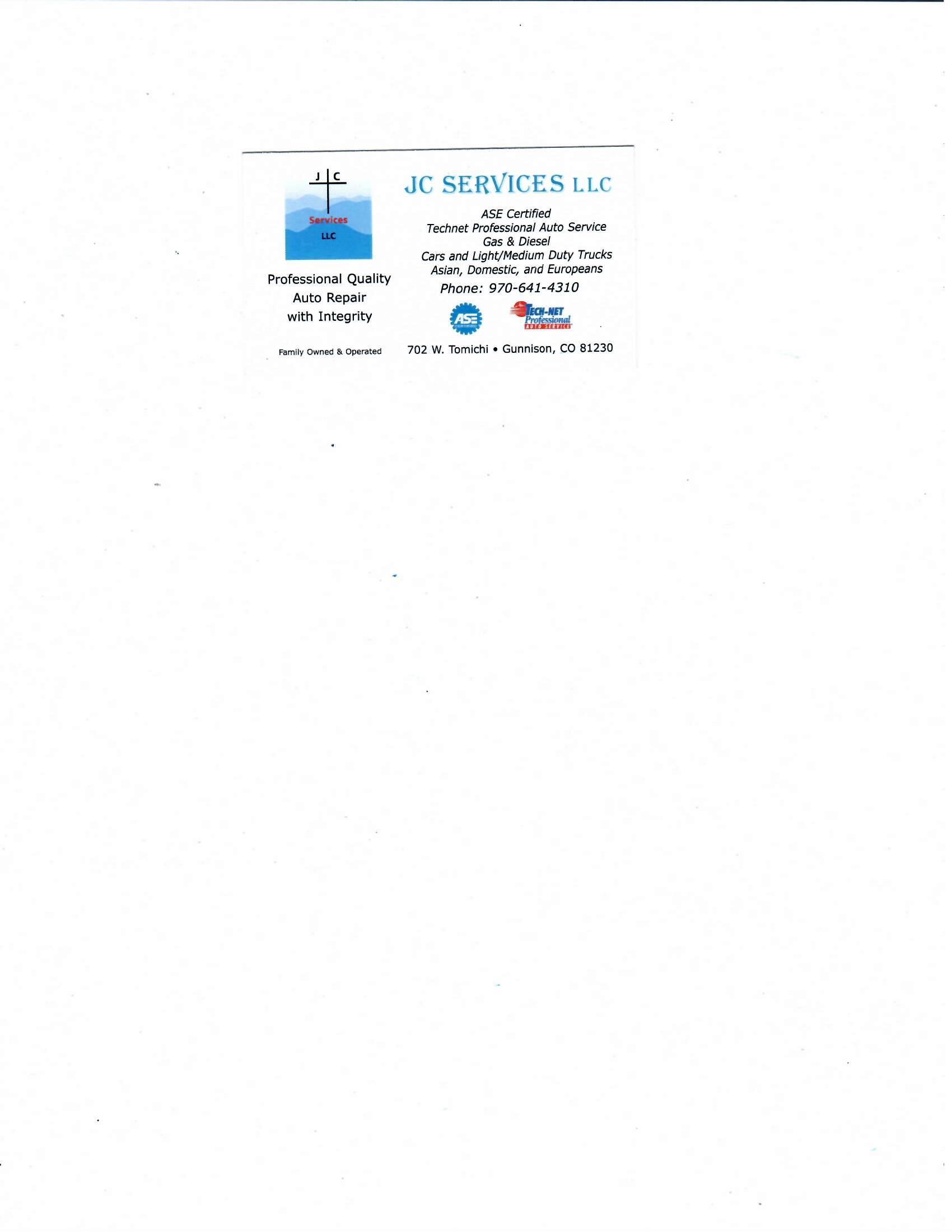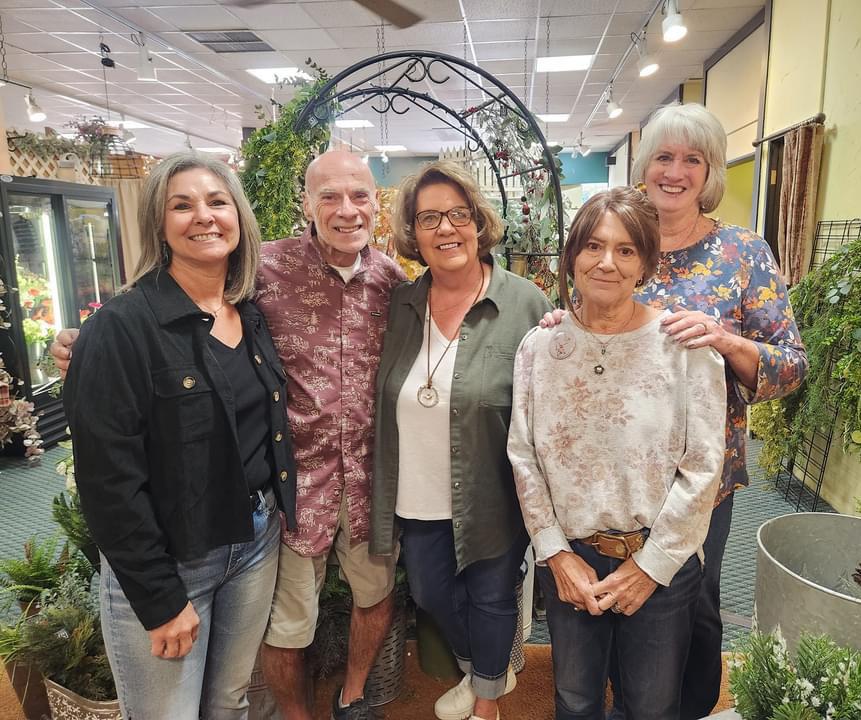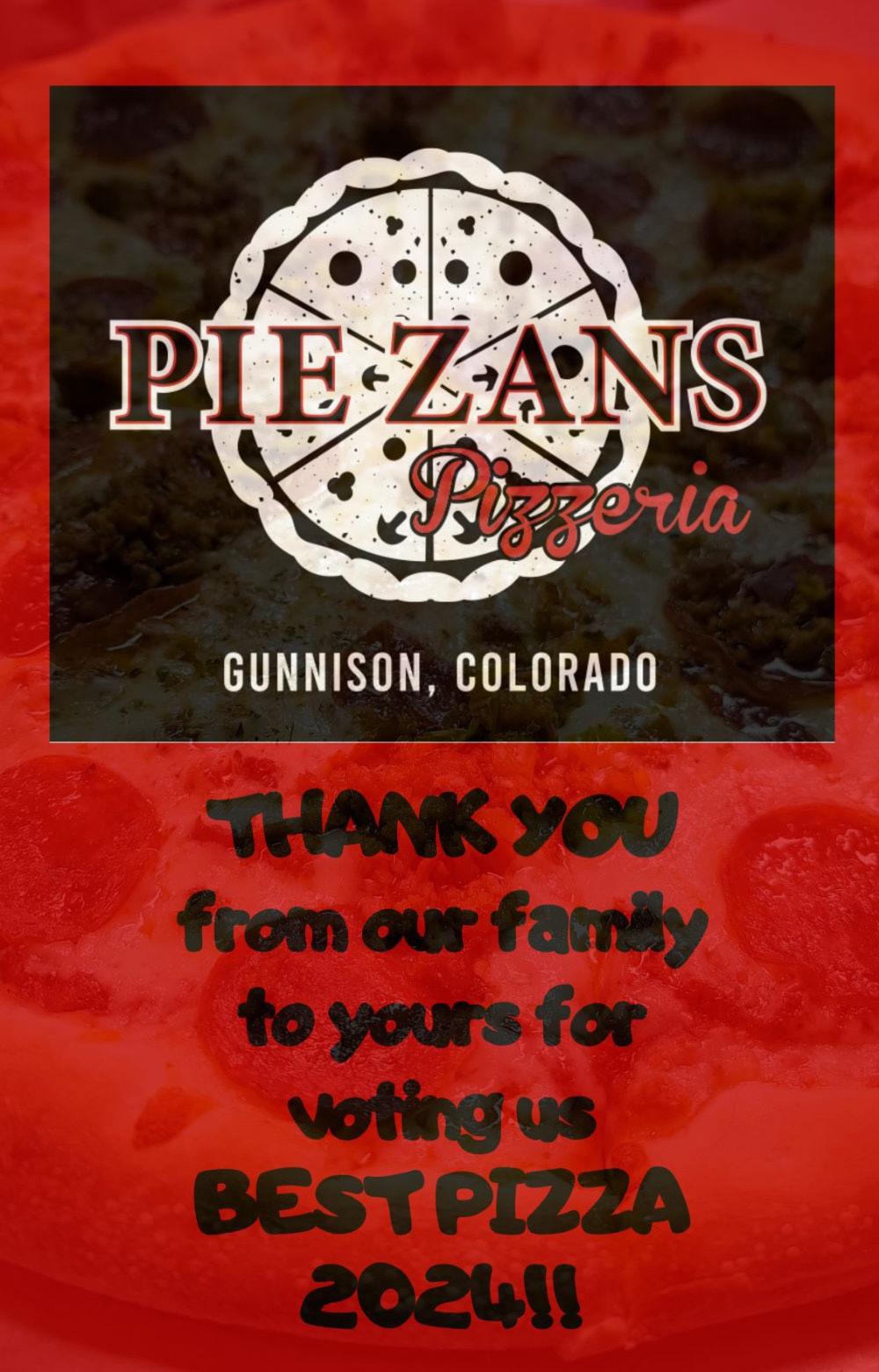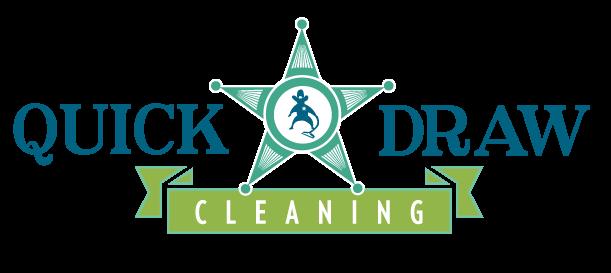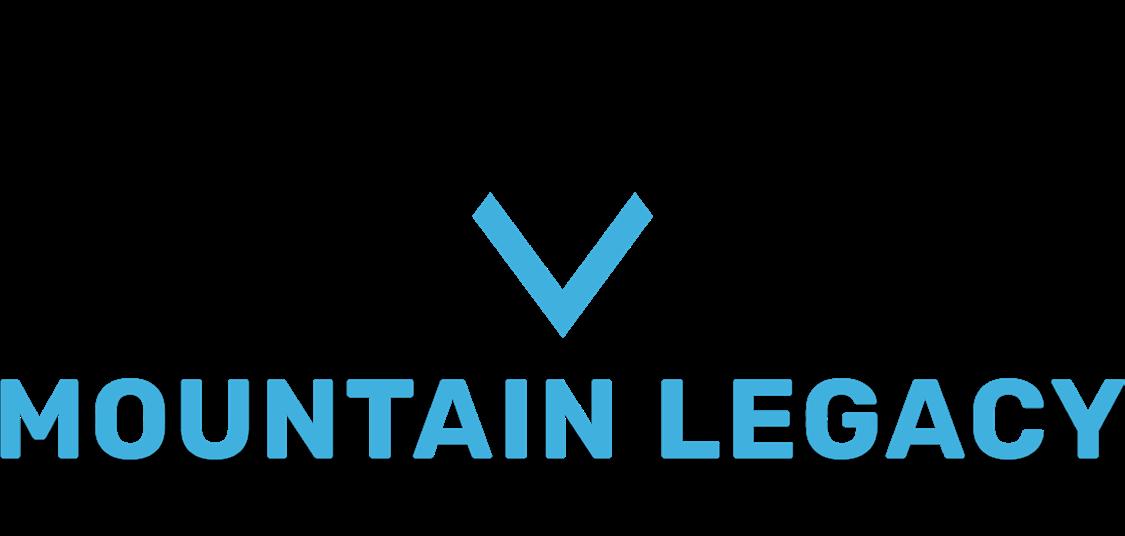OF


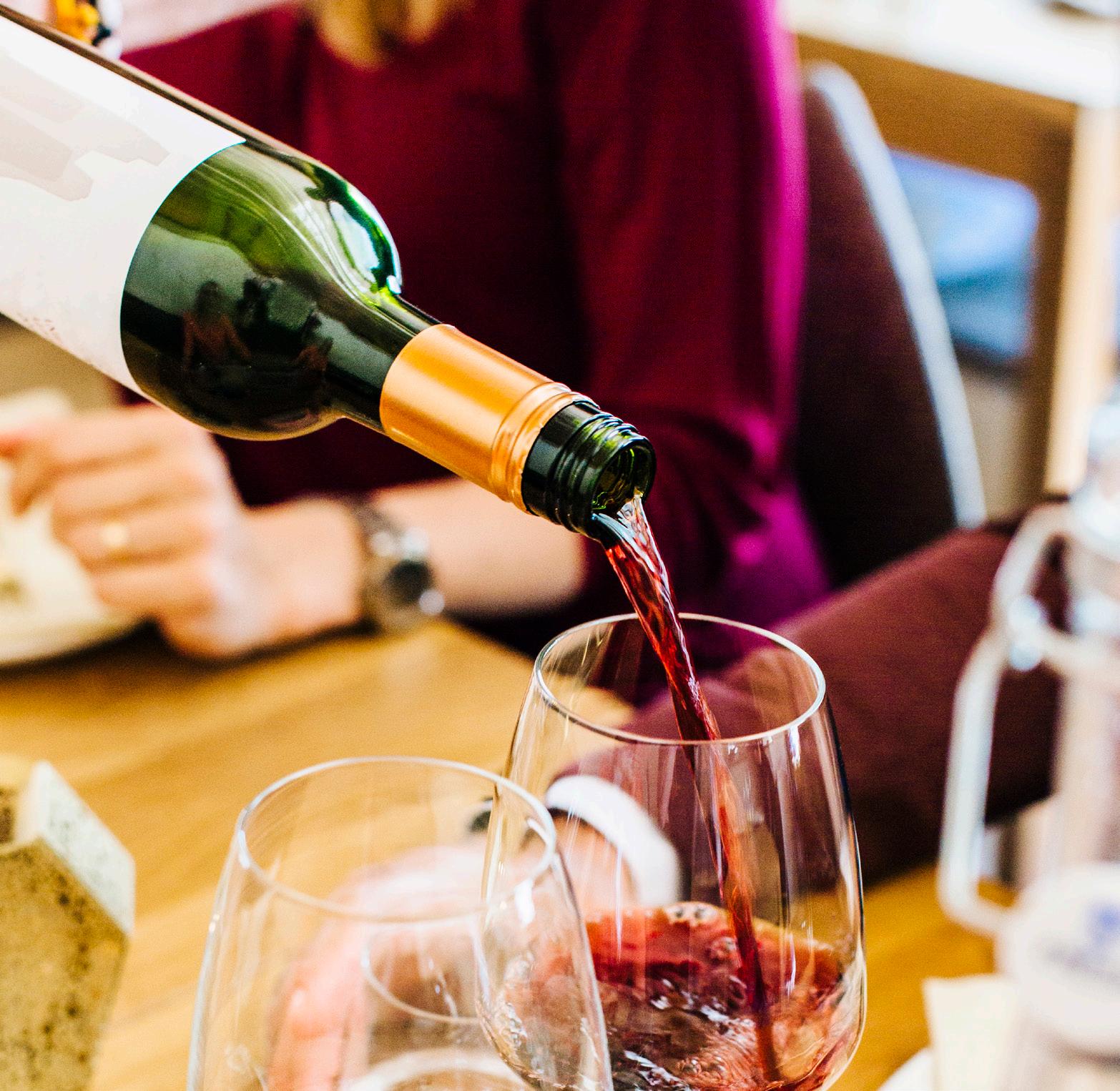

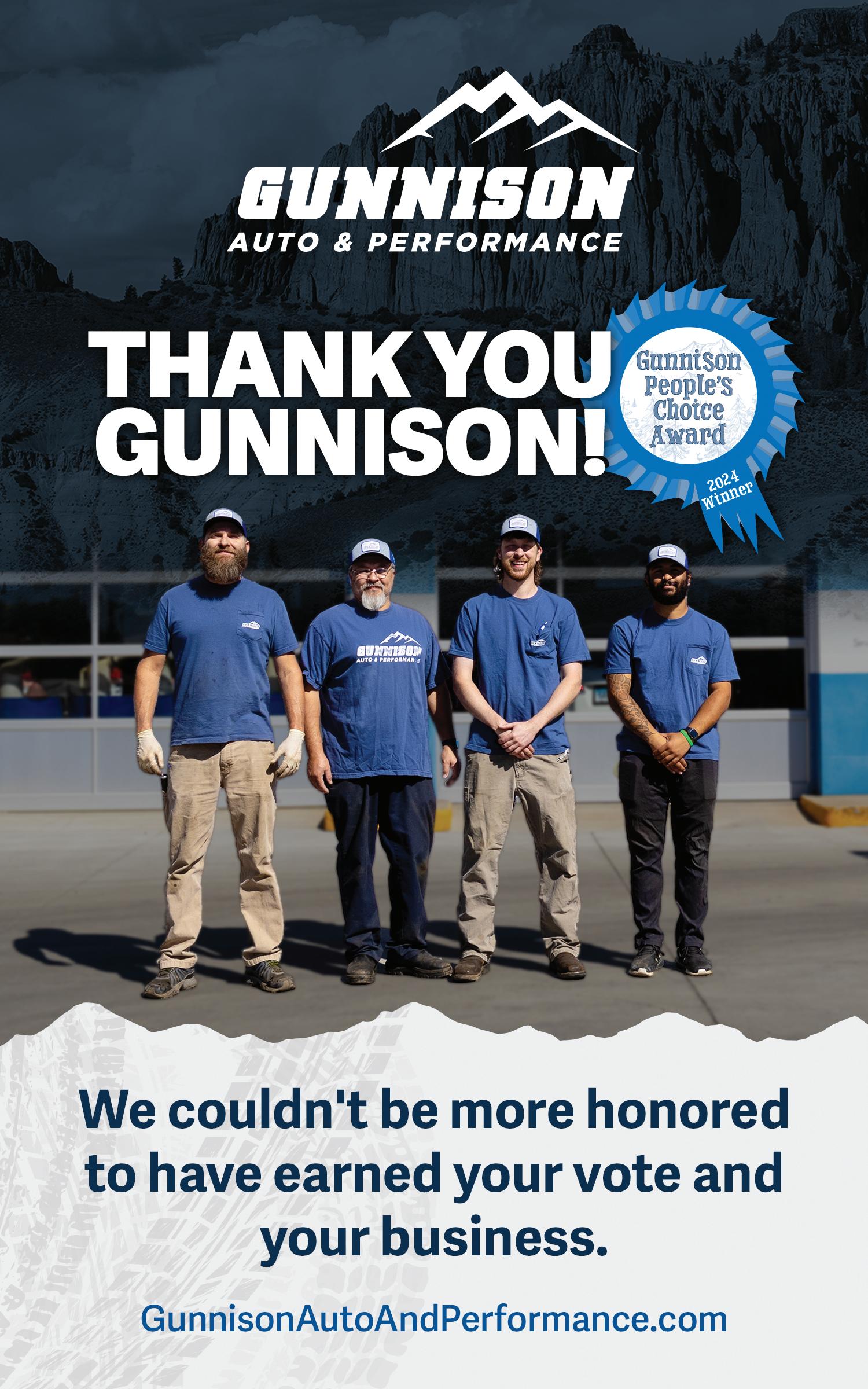


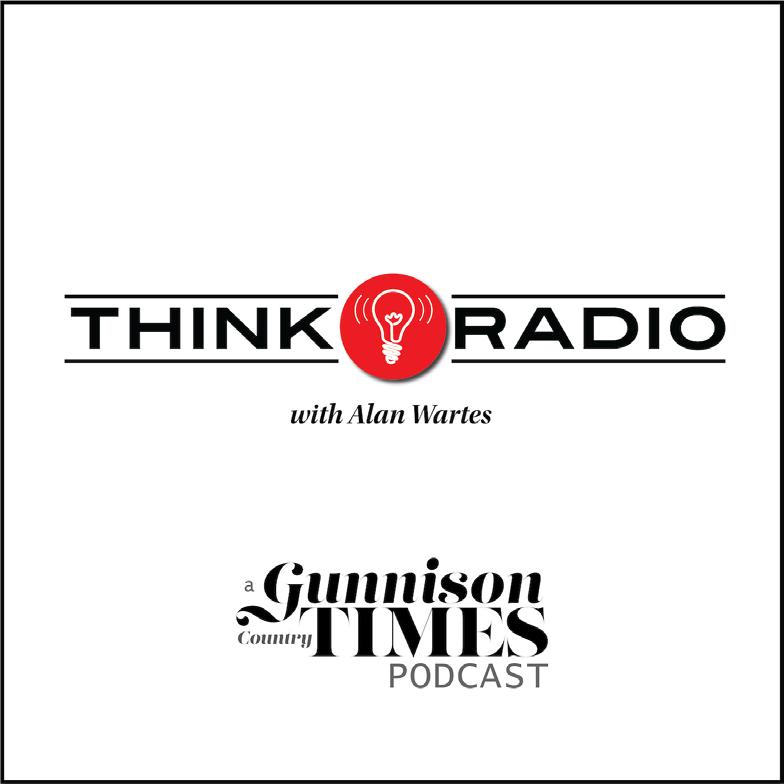

ALAN WARTES MEDIA EDITOR’S NOTE
Publisher: Alan Wartes
Editor: Alan Wartes
Production: Alan Wartes
Issa Forrest
Advertising: Steve Nunn
Bobbie Duft
Editorial: Bella Biondini
Abby Harrison
Alex McCrindle
Mariel Wiley Alan Wartes
About the cover:
© 2024 Alan Wartes Media
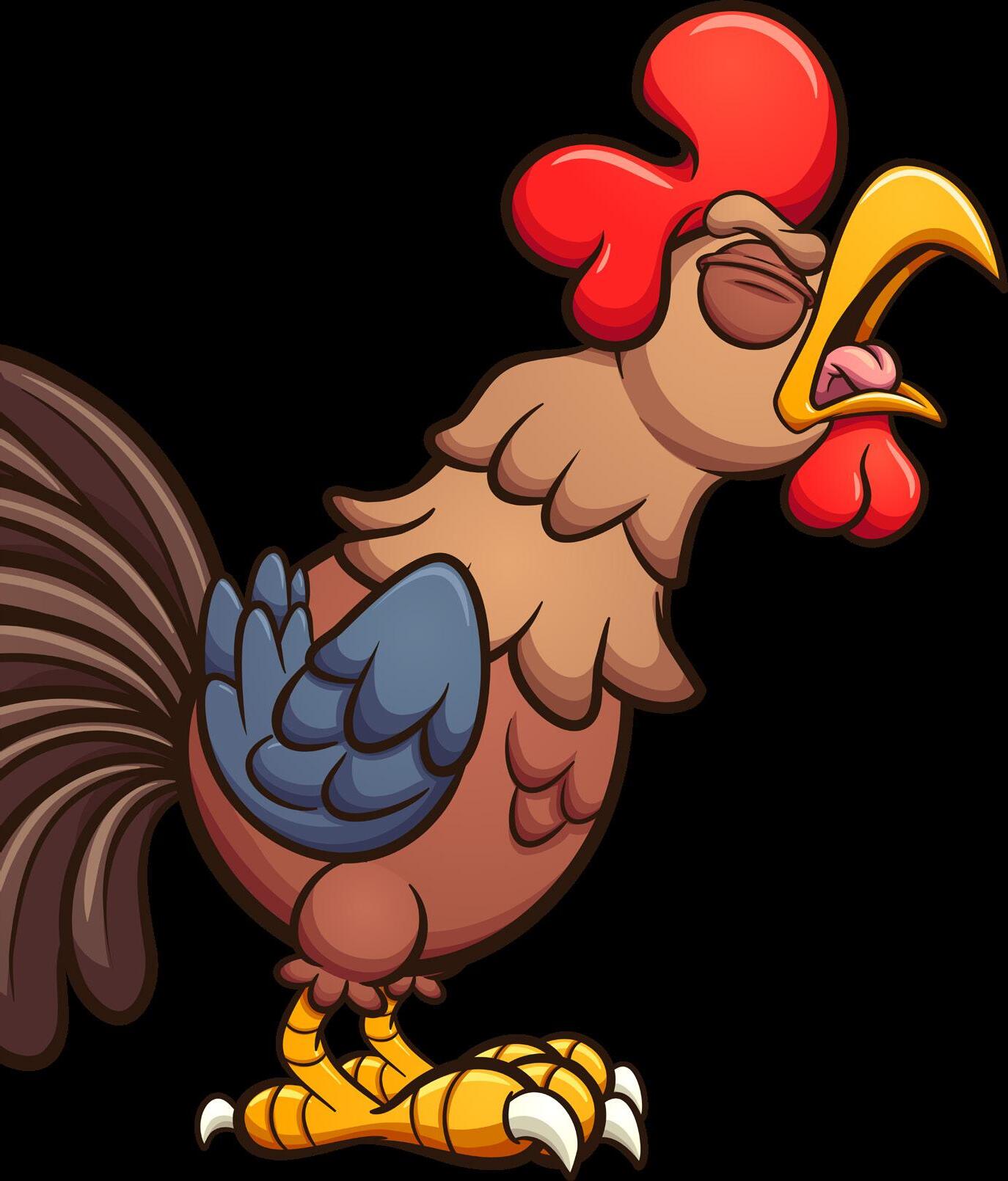
Look a little deeper
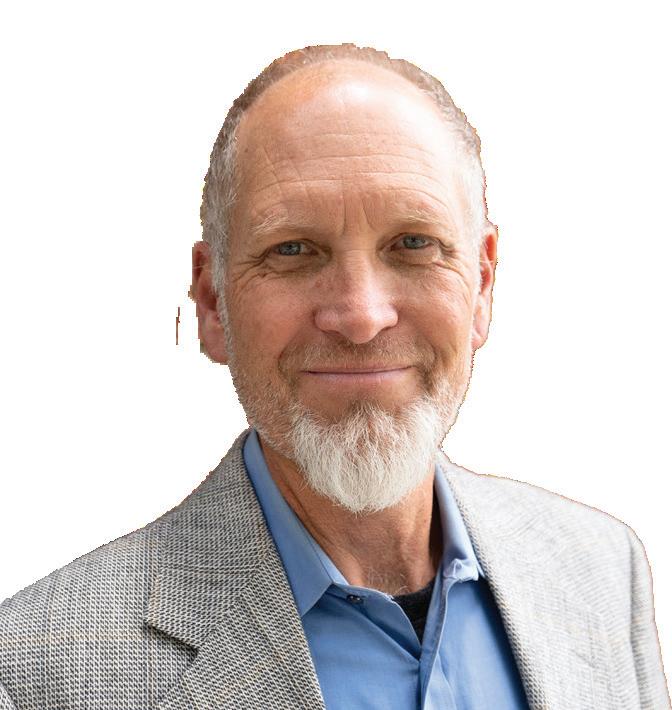
Alan Wartes Times Publisher
Of all the special publications that we publish through the year, The Best of Gunnison People’s Choice Awards is among my favorites. First, I love giving community members the chance to give a high-five to businesses and workers in the valley. There is no category for sounding off about what we don’t like, only what we consider to be the best. We could use more of that kind of positivity these days.
The second reason I love People’s Choice is because, as publisher of the Times, I know first hand how hard it is to operate a small business these days.
The headwinds our business community faces are real. Most of the time those challenges involve factors entirely outside our control — like bridge closures, big economic trends and even public health decrees.
And yet, the brave entrepreneurs of our valley keep opening their doors every morning, greeting us all with a smile and providing the goods and services we need and appreciate. This survey and publication serve as an annual chance to say “Thank you!”
This year, we’re also taking the opportunity to introduce a new source of business news and conversation in the valley — by launching a brand new podcast series in conjunction with this pub called GunniBiz. All the articles in these pages were drawn from in-depth interviews I conducted with a handful of this year’s winners and notable businesses. Each one is full of surprising insights into who they are and why and how they do what they do.
Do yourself a favor and make time to tune in. Look beneath the surface to get to know these neighbors a little better.
(Alan Wartes can be contacted at 970.641.1414 or publisher@gunnisontimes.com.)
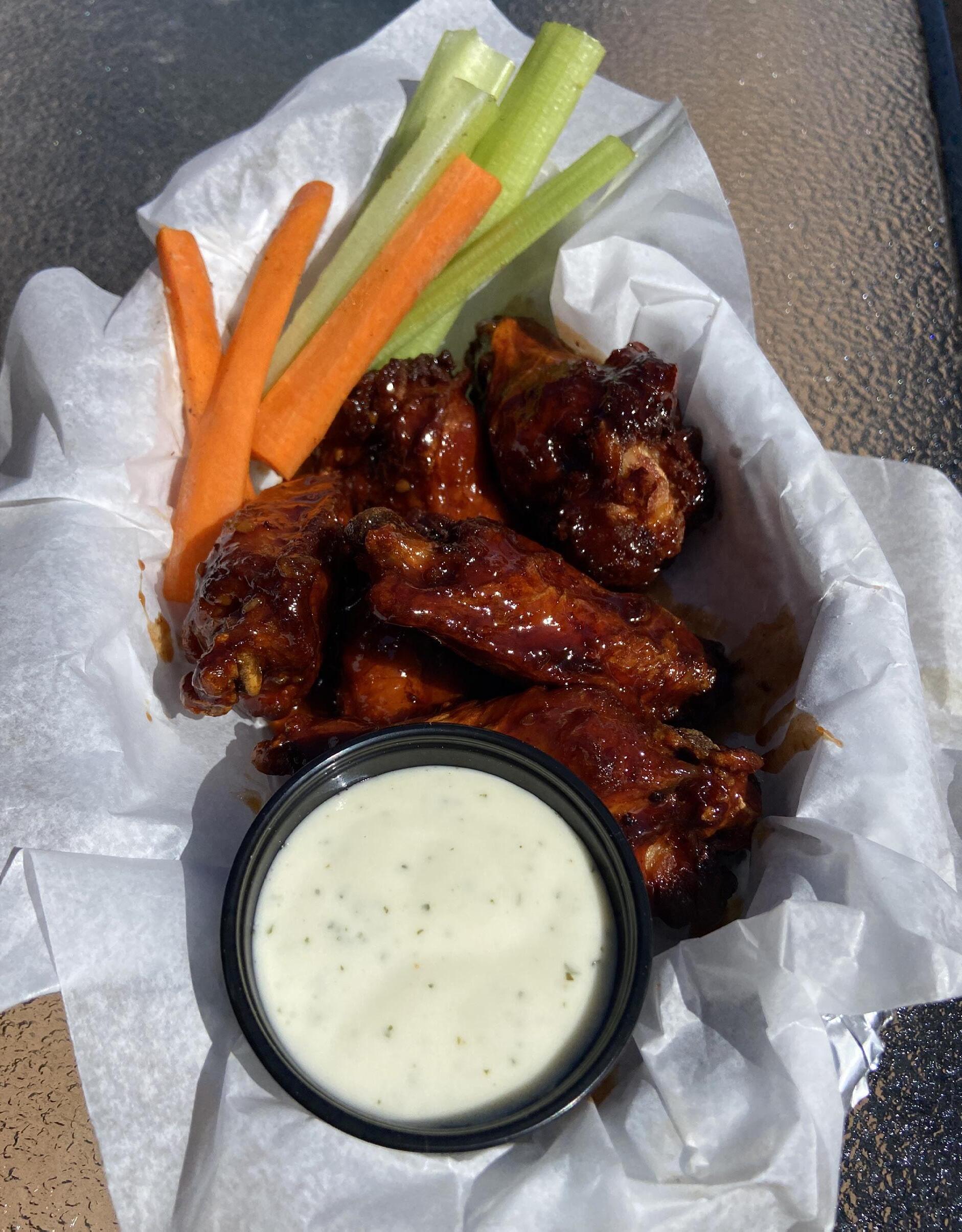
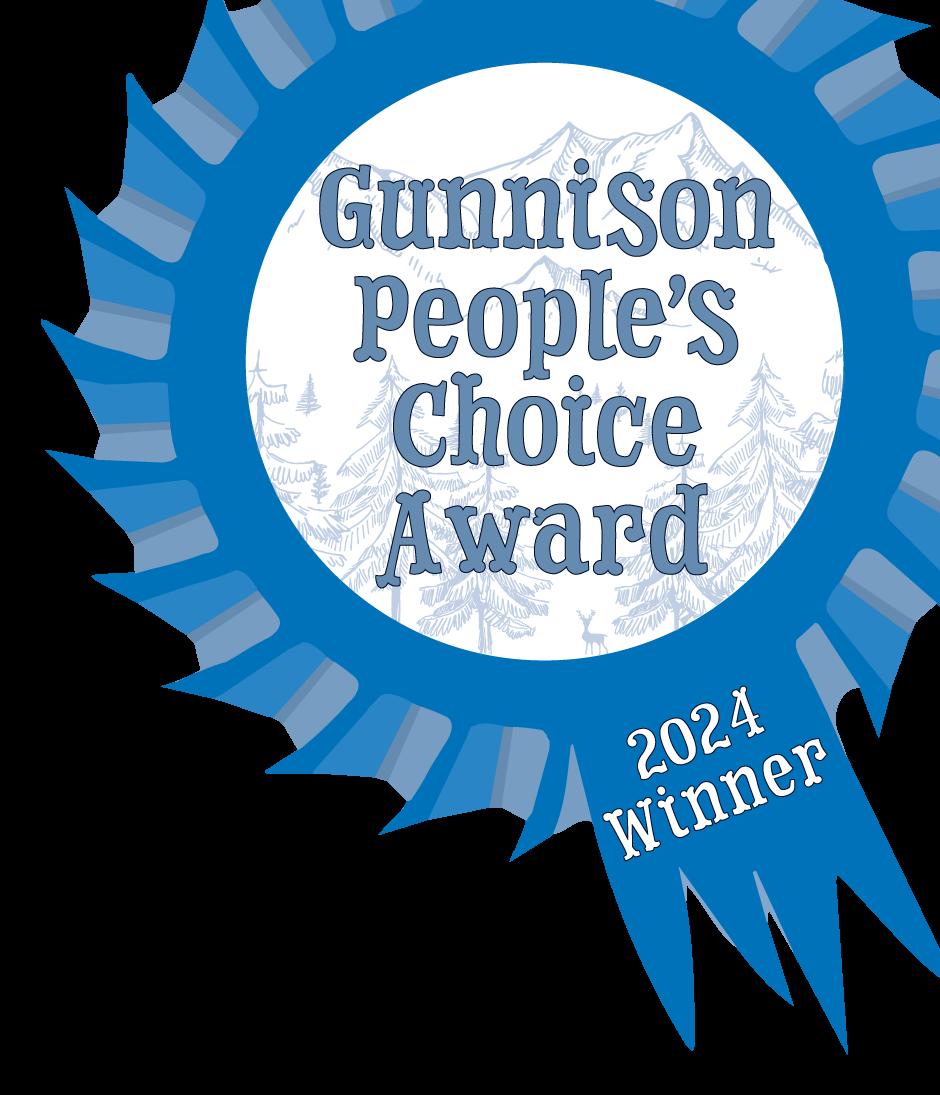

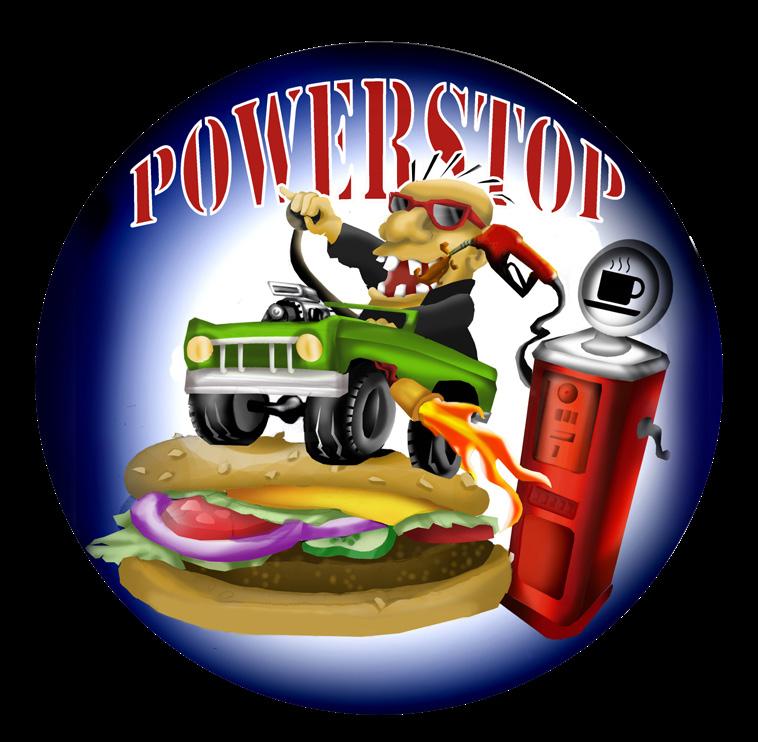
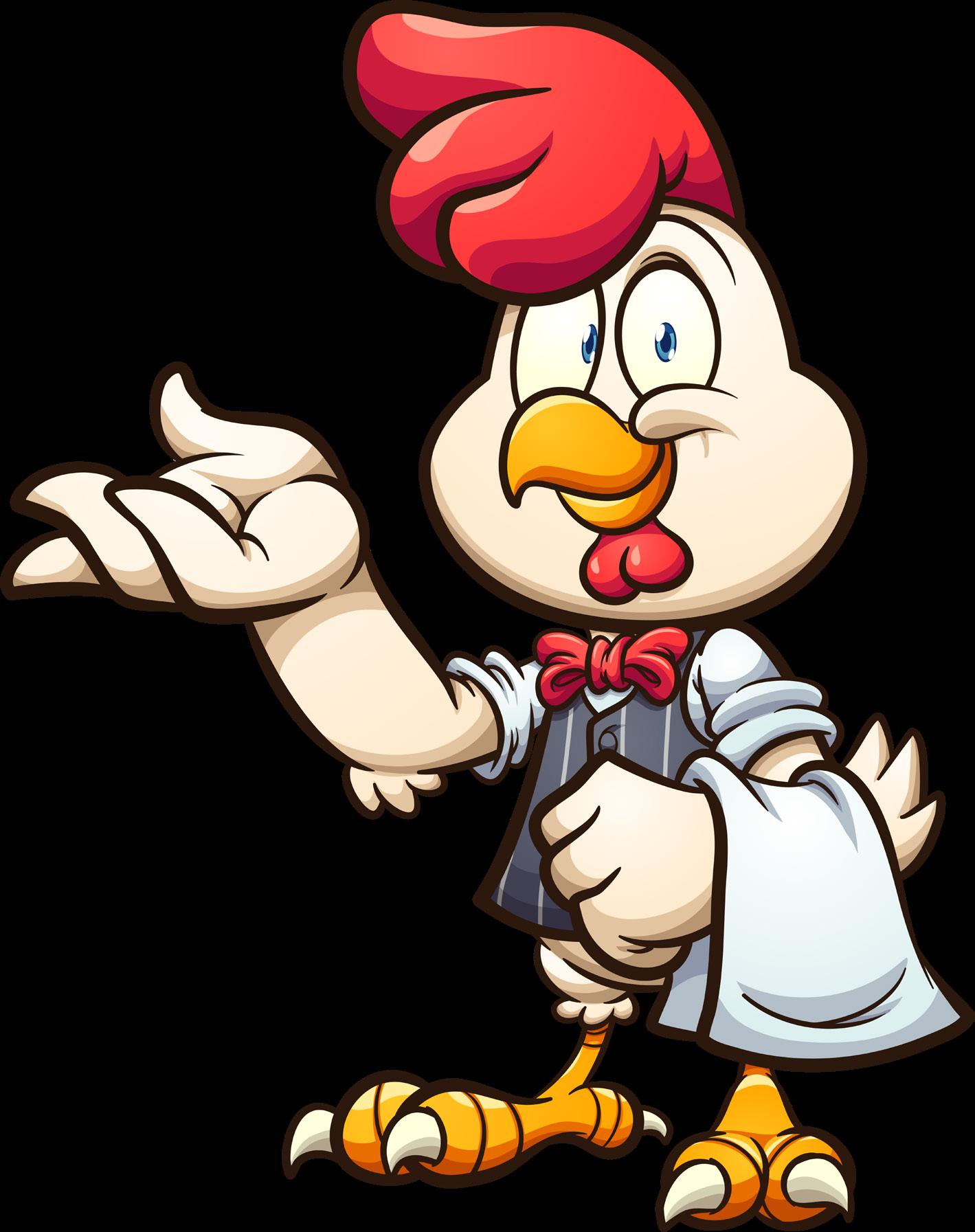


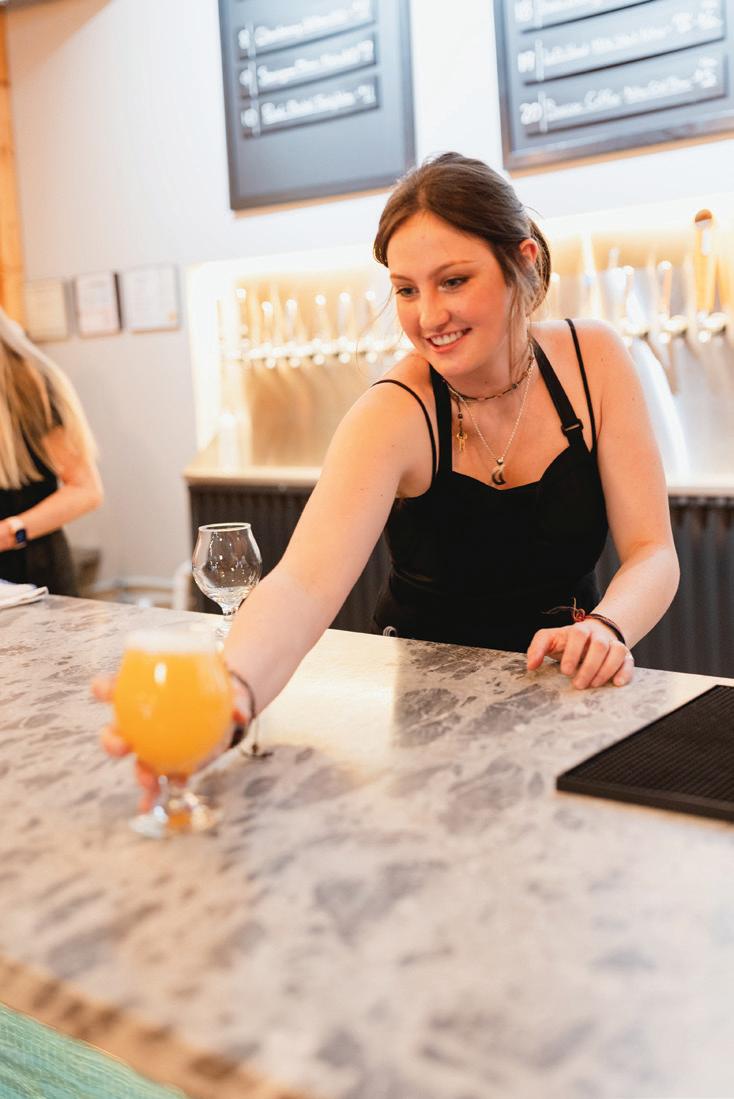
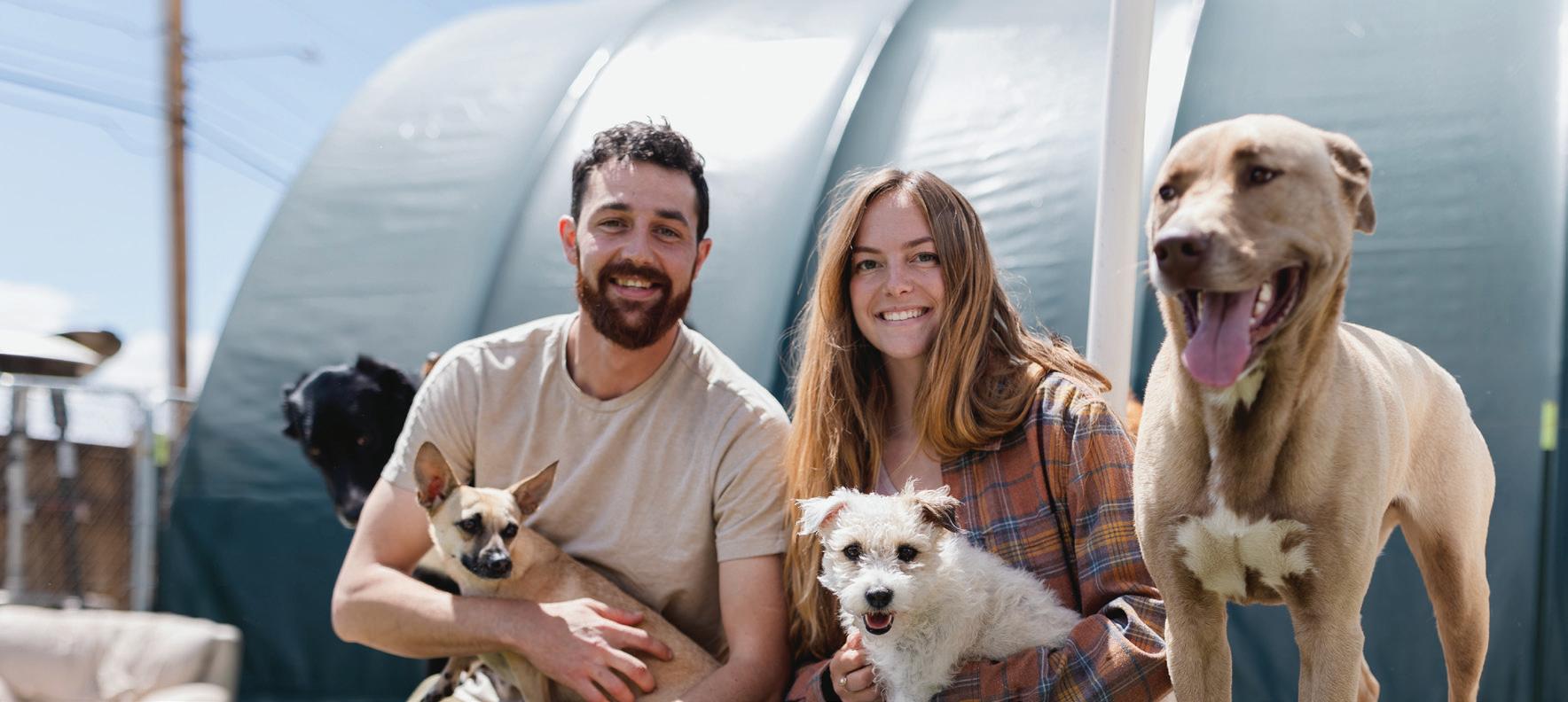

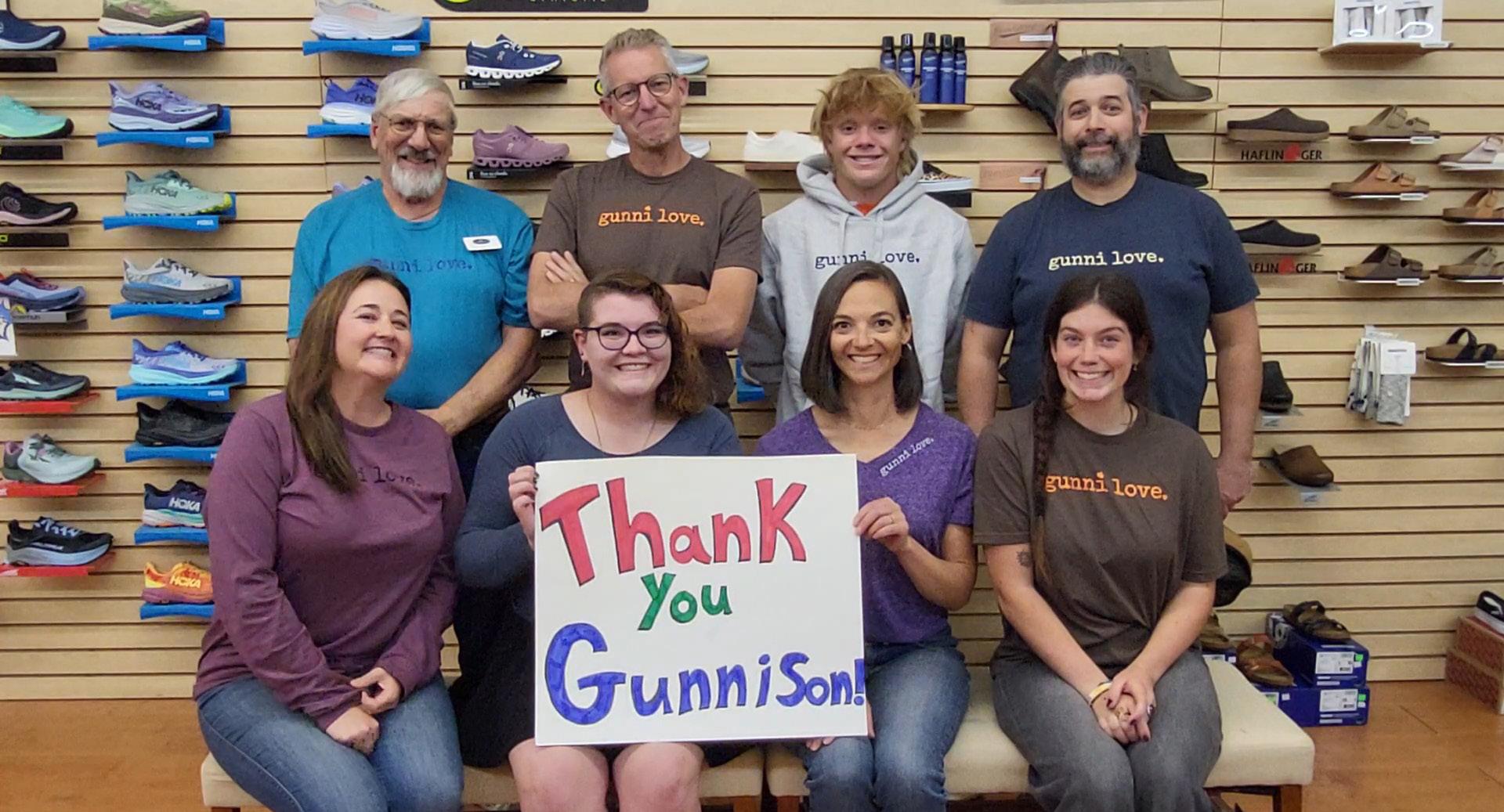
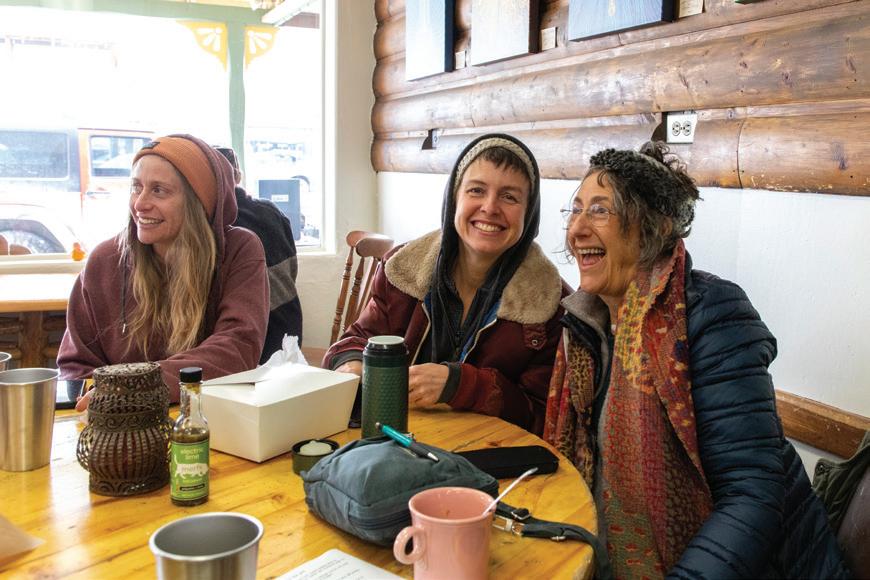



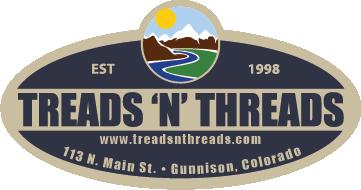






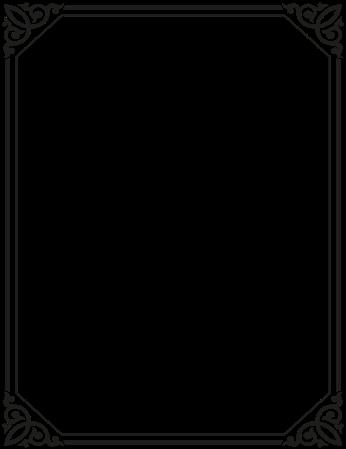


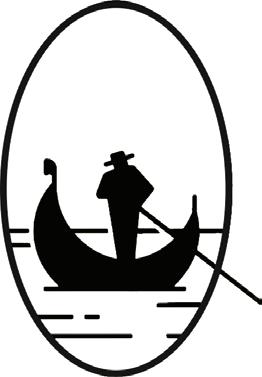
BEST CHEF: DANNY LEFEBVRE

BY ALAN WARTES, GUNNIBIZ
(Publisher’s note: This is an excerpt from an episode of a new busi ness-focused Gunnison Country Times podcast called GunniBiz. It has been edited for length and clarity. Follow the link below to listen to the whole conversation.)
Where do you come from?
I was born and raised in Minneapolis, but well over half my life has been in Colorado. I graduated from Western in 1997, and dur ing my time going to school at Western, I worked at Mario's. After graduation, I moved away, did some time in Portland, Oregon — that's where I did culinary school — then moved over to the front range. I worked in restaurants in Fort Collins, and then when I saw an opportunity to get back to Gunnison and still do what I like to do, yeah, it was too perfect. I ended up buying Mario's.
How did you decide to add The Dive to the business?
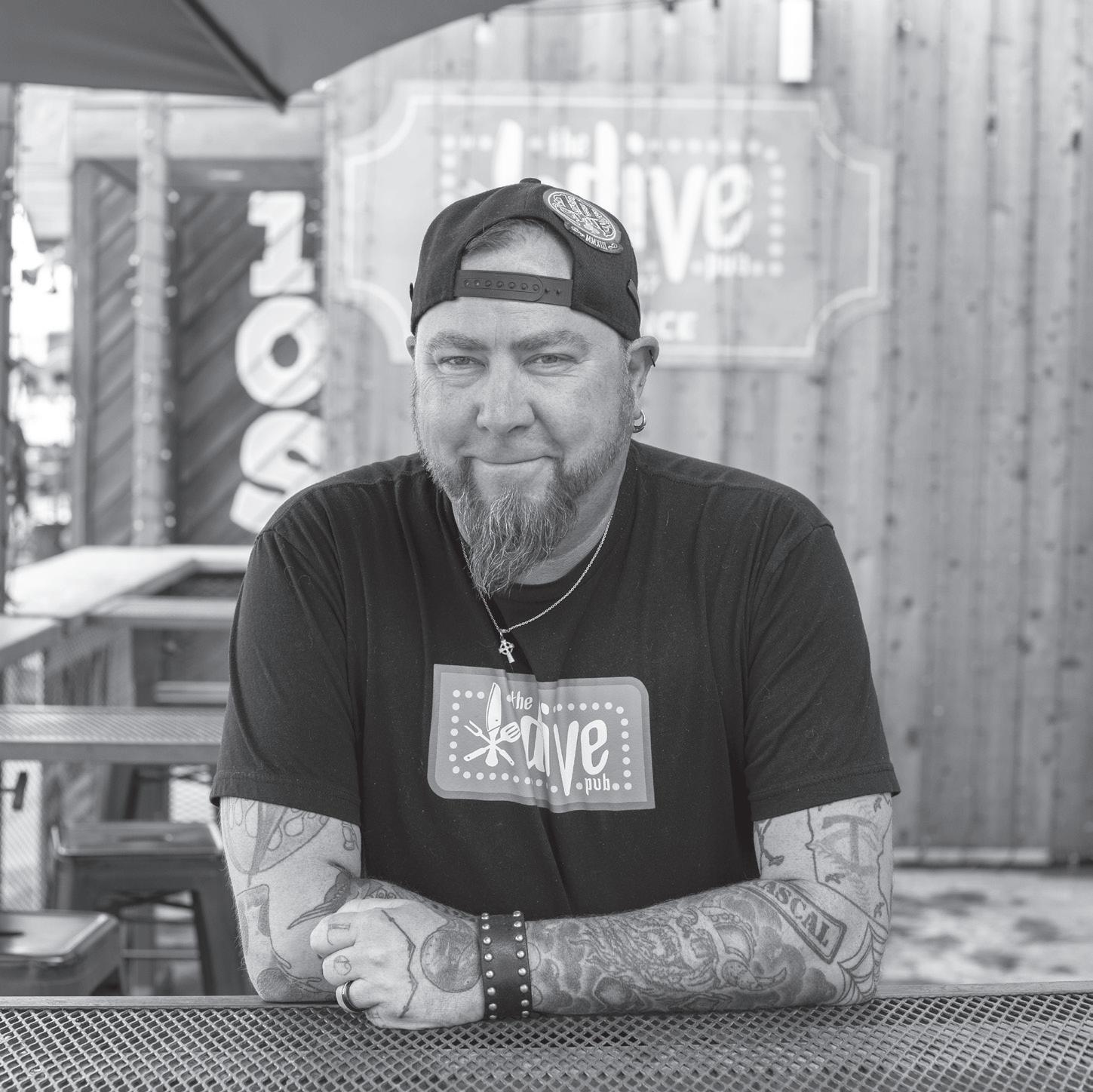
When Keri and I go out, when we travel and go out to eat, we always tend to look for those different types of places where I might not, outside of New Orleans, get shrimp or grits. I've always really enjoyed finding different types of food that you weren't expecting. And that's the type of menu that I tried to put together at the dive, which includes our chalkboard, which I try to keep rotating very often. The regular menu, I change twice a year, and then the chalkboard, that is the playground, right? And sometimes those items make it onto next year's menu.
What's the response been to that menu that was different from what customers were used to with Mario's?
That's actually the really cool thing. You walk in the front door and you go left, and you get traditional Mario's. I always refer to it as Chicago Italian-style food, not necessarily Italian. We're not doing dishes from Tuscany or anything like that. I mean, we're doing deep dish, Chicago-style pizza. So you walk in to the left and you've got your traditional food that Gunnison's always known and enjoyed. You go to the right and you get what I like to think is a little more eclectic. Both serve all sorts of people, any kind of appetite.
For most people, you call a place a “dive” and it conjures up this image of a place that's probably been there forever, and it's, well, kind of low rent. But you went for that.
Yeah, you're absolutely right. It was part of the lure — boom, this is what you get. Because in my mind too, a dive pub is [about] people. People ask about them. There's a really great little dive bar in such and such Florida, or whatever. I think people talk about them because it's comfortable, there's no frills. You're gonna get what you expect. But you come into our dive pub and it's industrial, it's wood and glass and concrete, and some pretty dope music.
That sounds like something I heard once, that people go to a restaurant for an experience, not just the food.
Anybody can pick up a frozen pizza at the store, and throw it in their oven, or pick up a pizza from wherever. But when people choose to eat in a dining room, they're choosing that for entertainment. They're choosing an experience. And therefore, at Mario's and The Dive, we don't focus just on the food, we try to focus on the quality of service. We want the quality of service to match the food.
What do you particularly love about this business?
It's something I know how to do, and I know how to do well. As a chef, I find myself really moving towards what I never really wanted, but now I know it's needed — that I'm not working the 10 hour shifts online. I'm developing menus. Some days I'm bartending, some days I'm on the floor. I enjoy being amongst a crowd, until I don't, and then I can go back in the kitchen. [Also] restaurant employees are like family, you know, we have to work with each other all the time, under stressful conditions, mostly. We get to celebrate success together, we also have to tolerate each other. That's
another aspect of the business I like, is the real family connection … Sometimes I feel like, when people start complaining about food or complain about the dish they got, they should work one shift in the kitchen. I take people on tours in the kitchen all the time. And I think it opens their eyes to see how this is done.
What's your least favorite part of this business?
I had to get two new knees last year. That sucked. It's hard, it's physically challenging and demanding. The saying, “If you can't stand the heat, get out of the kitchen,” that's a real thing. It can be mentally and physically taxing. Also, people talk about restaurant menu prices being too high. I get it. I usually don't participate in those conversations, because I understand why a restaurant would have higher prices. Our margins are razor thin. When I'm getting $3,500 worth of groceries coming in the back door, I'm trying to make sure everything is used as much as possible, no waste, no burning, no whatever … Last year I spent six figures on cheese.
A lot has been written about changes in the workforce, particularly since the pandemic. What’s your experience of that?
Ten years ago, come summertime, I had a stack of applications. I could just pick and choose who I wanted to work with. Now, you see somebody come in and they have an application, you're interviewing them right away, because you don't want them to go to that other place too, where they might potentially land them. Unfortunately, the restaurant business is not a work from home business.
Have you got any new ventures on the drawing board?
No, my wife won't let me! To her credit, she's the smart one, and it helps us. We've talked about maybe doing a couple other projects here or there, and I've got some ideas, and I've got some menus that I would love to put out there. Every time we do that I find myself trying to convince her that it's a good idea. But one thing she comes back to is, we already have trouble staffing two restaurants. Why do you want to have that issue with three or four restaurants?
Follow the link below to listen to the rest of the conversation.
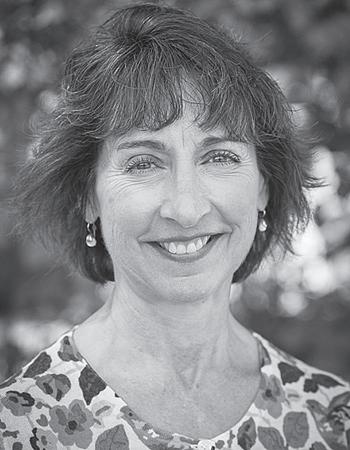
(Courtesy Lori Garren)
BY ALAN WARTES, GUNNIBIZ
BEST DOCTOR: LORI GARREN

emergency room. We took care of patients in the hospital, the nursing home. So, yes, it was very diverse, very challenging, never boring … One of the joys is, I have families that I've been privileged to take care of, and I have three or four generations in one family that I still get to see and care for. So that's the amazing part, and I don't know if you get that in a larger primary care setting.
In what ways is family practice changing now from when you began?
I think family practice had evolved from the old country doctor where you went somewhere to a small practice, and you took care of people from all different ages and tried to deal with their concerns throughout their lifetime. Right now, with the advent of so much more wonderful technologies, procedures and specialties, it's much harder to stay current with being able to manage patients. People are living longer. They have more complicated conditions and situations, and so many of those things really can't be taken care of here in our small community. So people have to be sent elsewhere for procedures. We’ve become a — I think the term is patient centered medical home — in which now we try to help patients navigate to the specialists and to go elsewhere to get their procedures. Thirty-five years ago, there just wasn't as much medicine to be obtained.
(Publisher’s note: This is an excerpt from an episode of a new business-focused Gunnison Country Times podcast called GunniBiz. It has been edited for length and clarity. Follow the link below to listen to the whole conversation.)
How long have you been practicing medicine in Gunnison?
I finished medical school in 1986, and then my family practice residency was a three year residency, and I did that in Greeley, Colorado. Then when I finished in the summer of 1989 I moved here with my family, husband and one small daughter, and pregnant with the second daughter.
And why did you choose Gunnison of all places?
I actually was born in Gunnison. My mom and dad were going to Western State [College] at the time, and so I was born here. Dr. Ron Meyer delivered me, and my mom and dad finished their degrees, and then they moved to Pueblo, which is where I grew up. My dad grew up in Crested Butte, so that's kind of a connection here. It was kind of a homecoming. The way I actually ended up here was I knew Jay McMurren from a rotation that I did here, a rural rotation, one of my years of residency. And then it happened that when I was ready to graduate and move on, they had an opening here, and I decided to come back.
What attracted you to medicine in the first place?
As a kid, I was always the one looking around at the science of the world. You know, what made the sky blue, what made the flowers grow? I really had an interest in science. And when I went to high school, I had a great science teacher for a couple years, and he really challenged me to pursue a degree in science, which I did. I went to University of Colorado in Boulder and have a degree in molecular, cellular and developmental biology. But even as I was doing that, I realized that I really didn't want to be in a lab. I really wanted to be out taking care of people, and was really interested in people's stories and how science applied to their stories.
Do you have any regrets about that decision to choose medicine over lab work?
I don't think so. It's been a journey, obviously, through training and in my time here, but for all the challenges, I'm still very, very happy that I did medicine. And I'm really happy that I did family practice. I think family practice as a specialty is changing now, but I really enjoyed doing it the majority of my career, because it allowed me to take care of people in all age groups here in a rural setting, and be more diverse than completely specialized … When I first started we all did obstetrics. We delivered babies. We worked in the
Over that time, behavioral health has moved more into the primary care practice. What has been your experience of that?
The holistic approach to medicine was big in the 70s, and that brought with it a realization that our minds, body, spirits are all interconnected and should be thought of as an integral part of healthcare. I think what we're finding now, as medicine gets more complicated and lifestyles get more complicated, that it takes more time to listen to people and to really try to communicate with people. When that doesn't happen, well, then mental health issues become more prominent. And of course, mental health is integral to the rest of our health, so all of us take additional training in behavioral health issues. It's really nice to have those kinds of services within the family practice setting, because the complications of medicine have made people a lot more anxious, a lot more depressed just trying to deal with their situation.
Are you seeing improved health outcomes with more attention to behavioral and mental health?
It definitely helps with overall health. One of the big issues, and still one of the big barriers, is that mental health is not covered as well as some of the other health care issues. So it's often easy to go get a cardiac [catheterization] or a hip replacement, and if what you really need is some care for your depression, counseling services, or other tools to help you, insurances still don't cover that as well as they should.
Gunnison Valley Family Physicians has now been acquired by Gunnison Valley Health. What comes next for you?
I'm going to retire at the end of November, which was kind of in the plans before this transition. I'm going to really enjoy the county. When it's a powder day, I can go. I haven't been delivering babies or working in the emergency room for about 10 years now, but I think I'll be more rested.
Follow the link below to listen to the rest of the conversation.
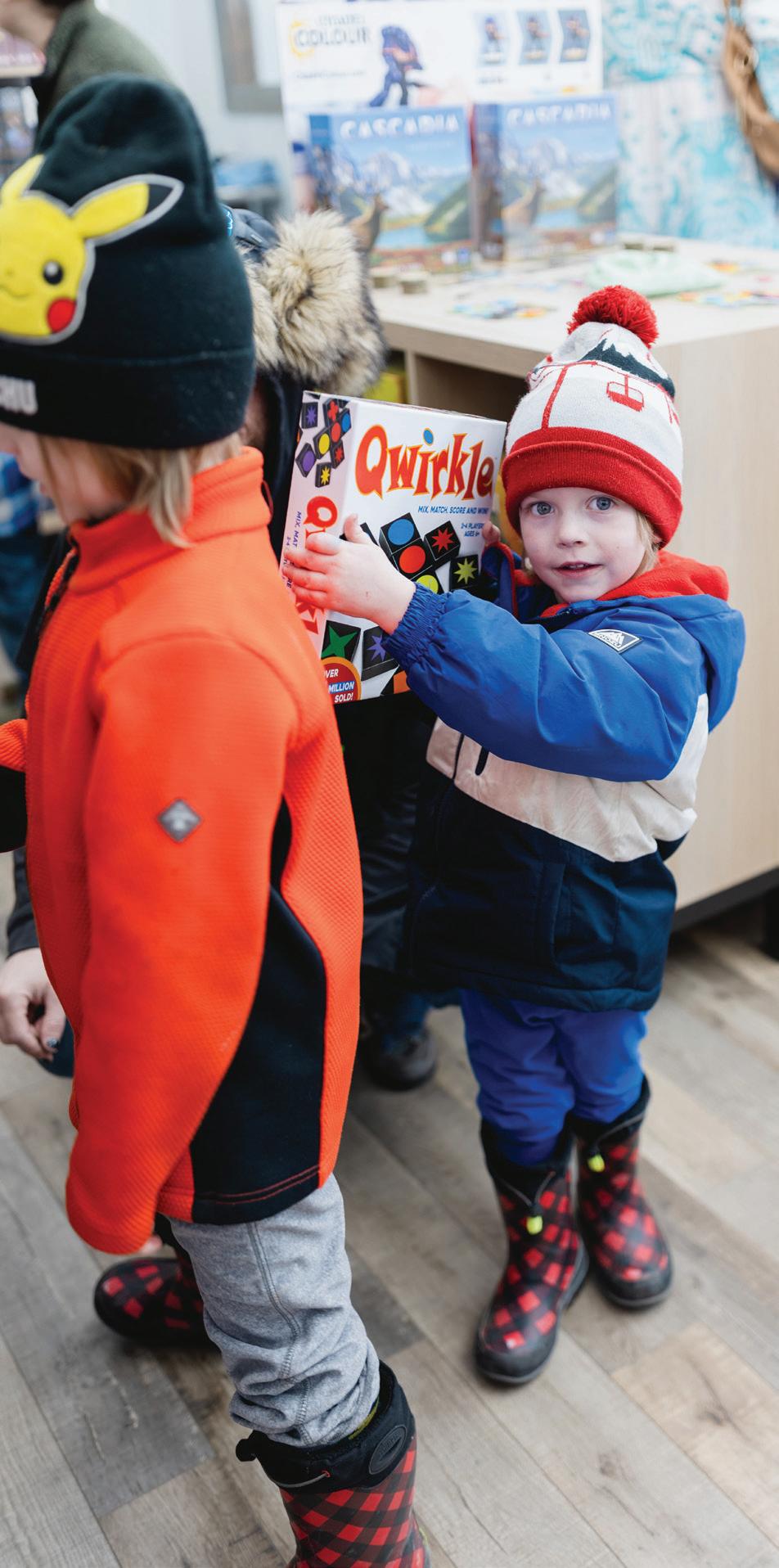
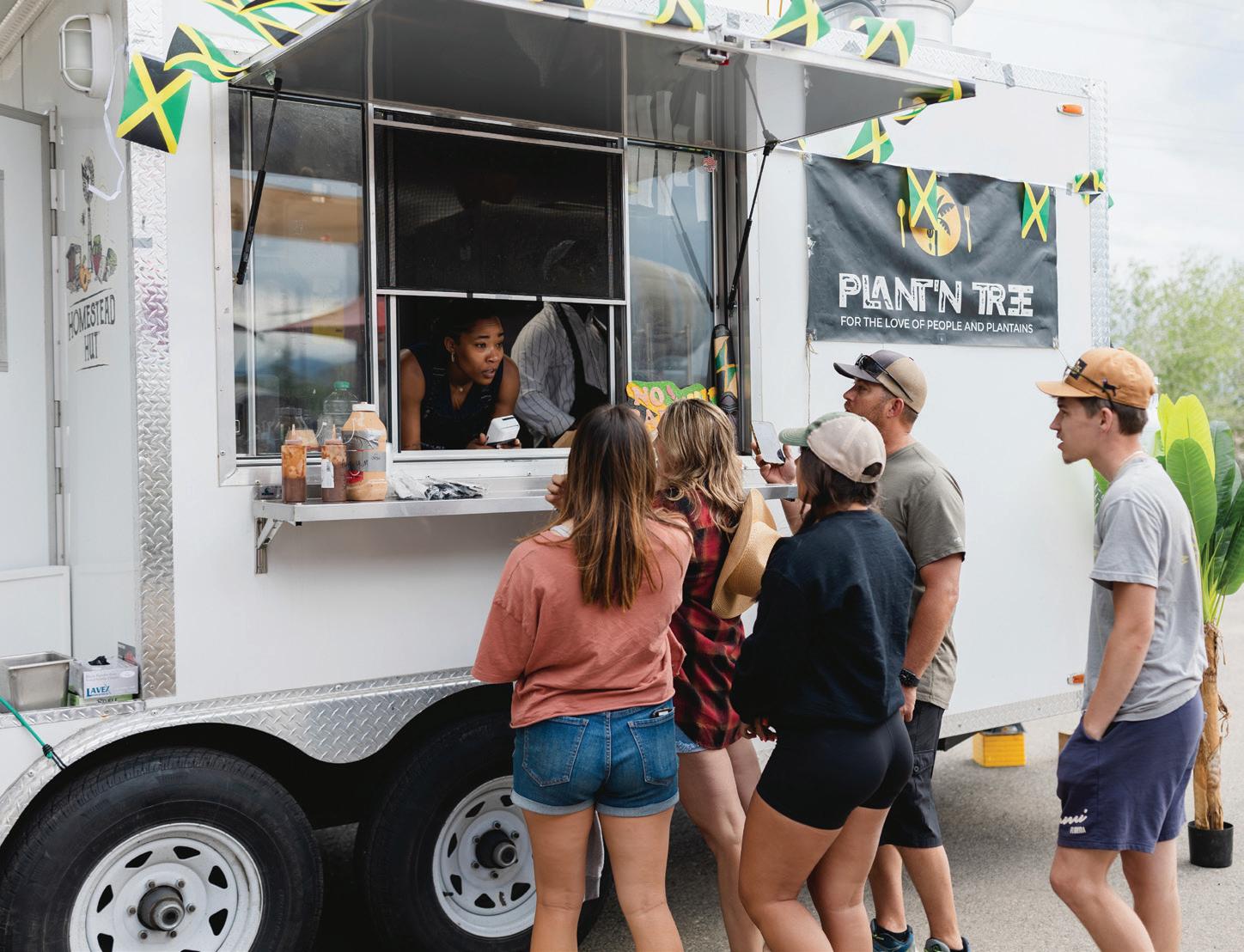
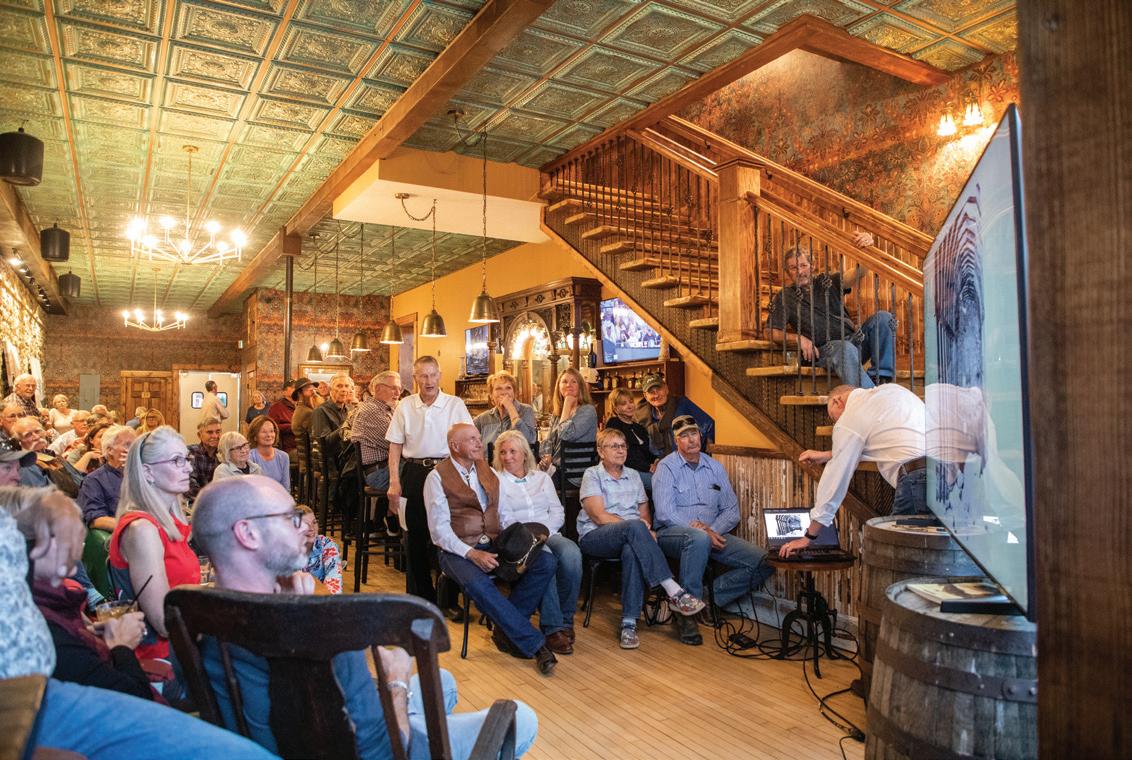


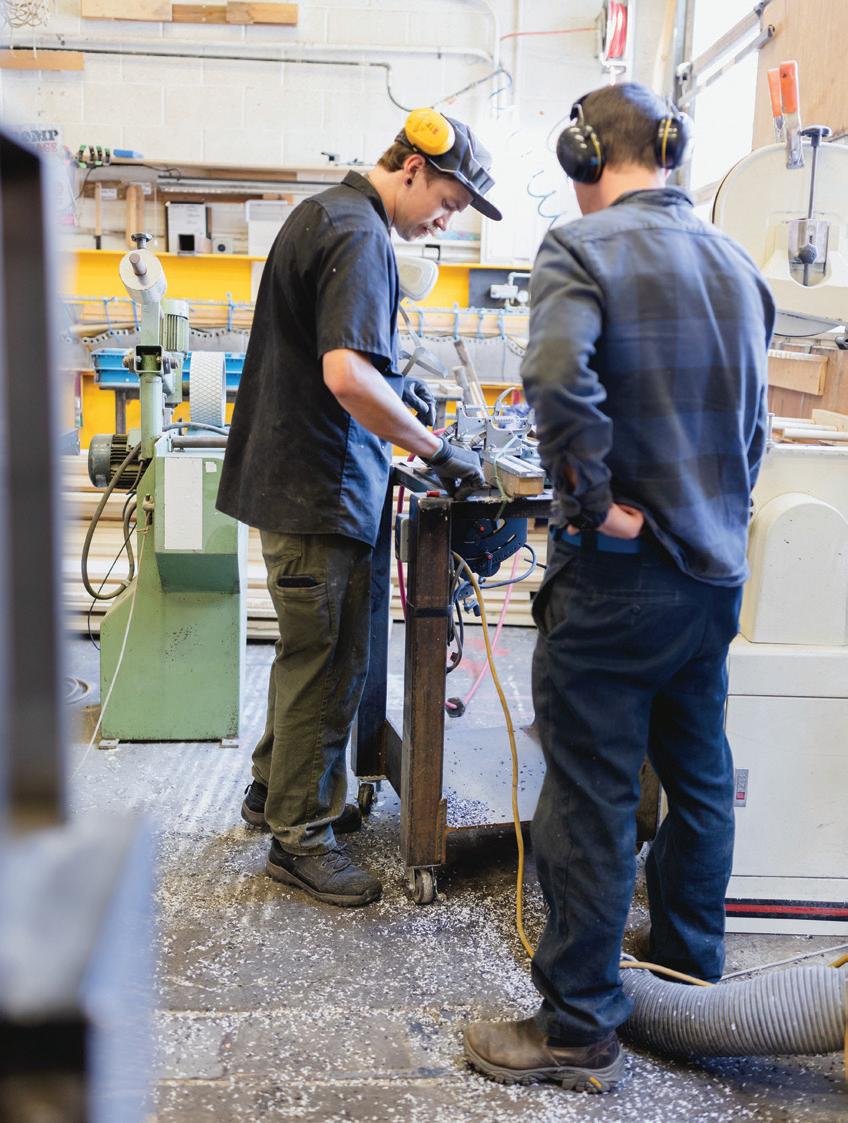


NEW BUSINESS: STORYWEAVER GAMES, JASON JANELLE
BY ALAN WARTES, GUNNIBIZ
(Publisher’s note: This is an excerpt from an episode of a new business-focused Gunnison Country Times podcast called GunniBiz. It has been edited for length and clarity. Follow the link below to listen to the whole conversation.)
Where do you come from?
I was born in Boulder, and then in either 1988 or 1989 [my family] moved here, and I started middle school up at Ruland, which isn't there anymore, which is now a field with a fountain in it. We used to go have lunch at McDonald's once a week. I went all the way through high school here, graduated in 1994, went to Western [State College] for a while, then moved to the Front Range when we had kids. I worked for a number of tech companies doing IT, starting with big ones like IBM, and all the way down to little startups that had a couple people. Basically that just means that I built the systems and designed the systems to stand themselves up and run
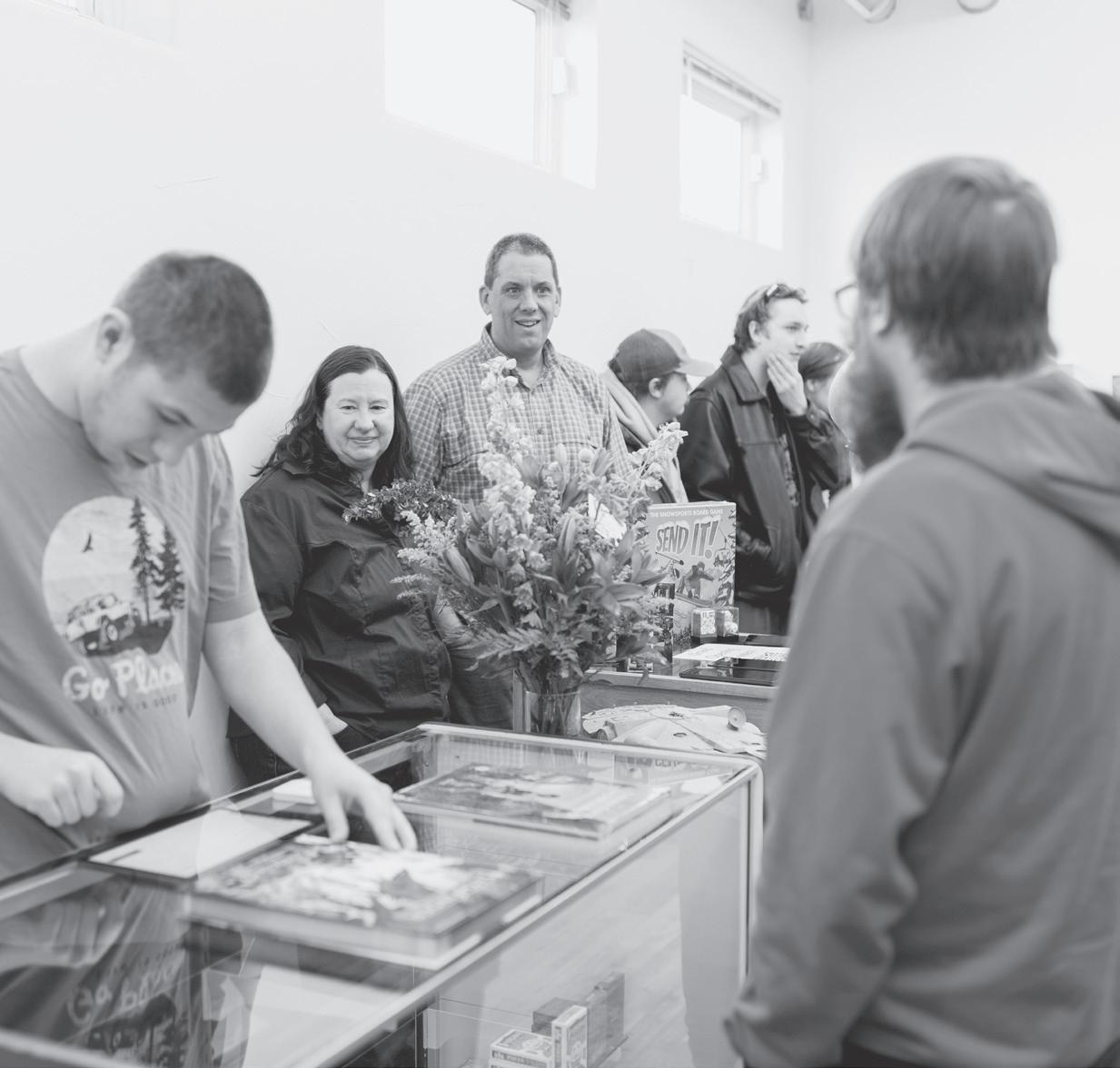
all the fun web apps and stuff like that that we all use today.
Serious geek stuff.
Yeah, I started in 1999, and we went through the whole Y2k, nonsense, which, as much as everybody likes to make fun of it, it was a serious thing in my industry. Because things could break, and we had banks that were going to be mad if they broke. We spent a year doing really hard work after spending the previous couple years learning about how it was going to affect everything. We ran trials and all kinds of tests. We would set the clocks forward and watch what broke. And things broke. But it's because of all that hard work that all the people across that industry did that we didn't have a problem, and it turned into nothing. I stayed up that whole New Year's Eve in a cubicle at IBM watching the clocks turn across the country. Nothing happened, and that's because of a lot of hard work that was done, and nobody knows about it.
How did you wind up back in Gunnison?
I never stopped coming back here. So as much as we moved to the front range and were raising our kids there, my wife's sister lived here the entire time. I had family here who have since passed away, but I would always come back and visit them, and we loved to come back every summer and probably spend a month here camping. And because we could work remotely, that was a lot easier to do. I'd been recently laid off, and we had planned to spend another year in the corporate world, and then I was going to start a game store. So instead of that, I spent a year working on our house and lightly investigating the market of Gunnison and what that might look like. About six months after I was officially laid off is when we opened [Storyweaver Games].
Of all the businesses you could start, why games?
A couple reasons. I really enjoy them, and found a very unique community in the gaming stores on the Front Range and in different places I've traveled to where they have games, but also tables where you can go and play those games. Because it's one thing to go to a Barnes and Noble, or whatever, and buy a game off the shelf and then hope your family wants to play it, or hope your friends want to come over and play it. But it's a whole other thing when you know that there are tables and people who are interested in the same things as you. The other reason I opened it was because my son is autistic, as well as has ADHD, and he had a lot of trouble communicating with his peers in school, and really couldn't find a community. As he grew older, he became more and more secluded. At one point he wanted to try a game called Warhammer, which I had vaguely heard of and never really paid attention to. He was super into it. And so we listened to him, and we went to the game stores and got all the little plastic parts. The game store had a table and a community that was looking for people, and so he found people that were interested in the same thing he was. And he found a way to communicate with people. He really opened up and stopped hiding in his room and was looking to go outside and communicate with people. That experience really left a mark on me.
Do you think the fact that these games are played in person played a role in what you experienced with your son?
It helps people be more genuine with their intent. There are a lot of people online who can hide behind the screen and be bad actors. Basically, we've all heard of bullies online, and that can
happen in the game store. We've had it happen in our store. One person said something that bothered the other person. The other person spoke up, and then it was resolved. And I didn't even have to speak up or step in. I was genuinely glad that they self-resolved their problem, whereas, online, you have the option to mute the other person, just completely block them, say something nasty and then walk away. And if you did that in person, it's very much more difficult.
Shifting to the business side, this seems like a high risk thing to do. How do you turn all of that into revenue that keeps the lights on?
My idea was to encourage people to come and have fun at the store. So in that way, I wanted a place where people could come and have to spend literally no money to have fun. So you can come in, you can sit at the tables, you can pull games off of our library of shelves and just enjoy your afternoon. And in my mind, if you do that enough times, you're like, “I want to do this more,” and so you will invest in something in the store we sell. I mean, we sell a small amount of food, but that doesn't really cover costs. But it was always important to me that people could come in, kids could come in, or adults could come in and not have to spend any money. But then, if you enjoy doing that, you will eventually have extra money and want to play that at home with your friends, or play on a day when we're closed, or something like that.
Follow the link below to listen to the rest of the conversation.



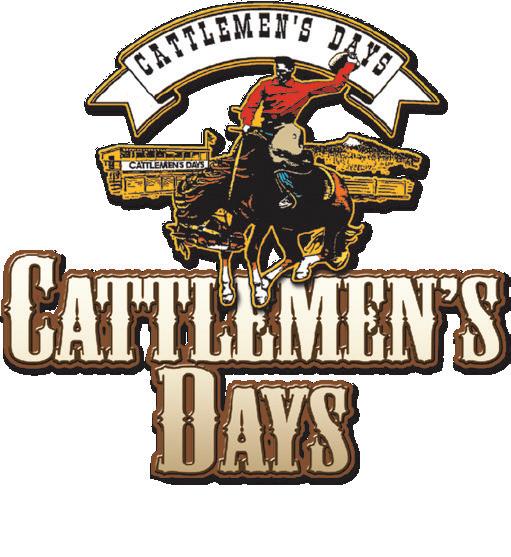
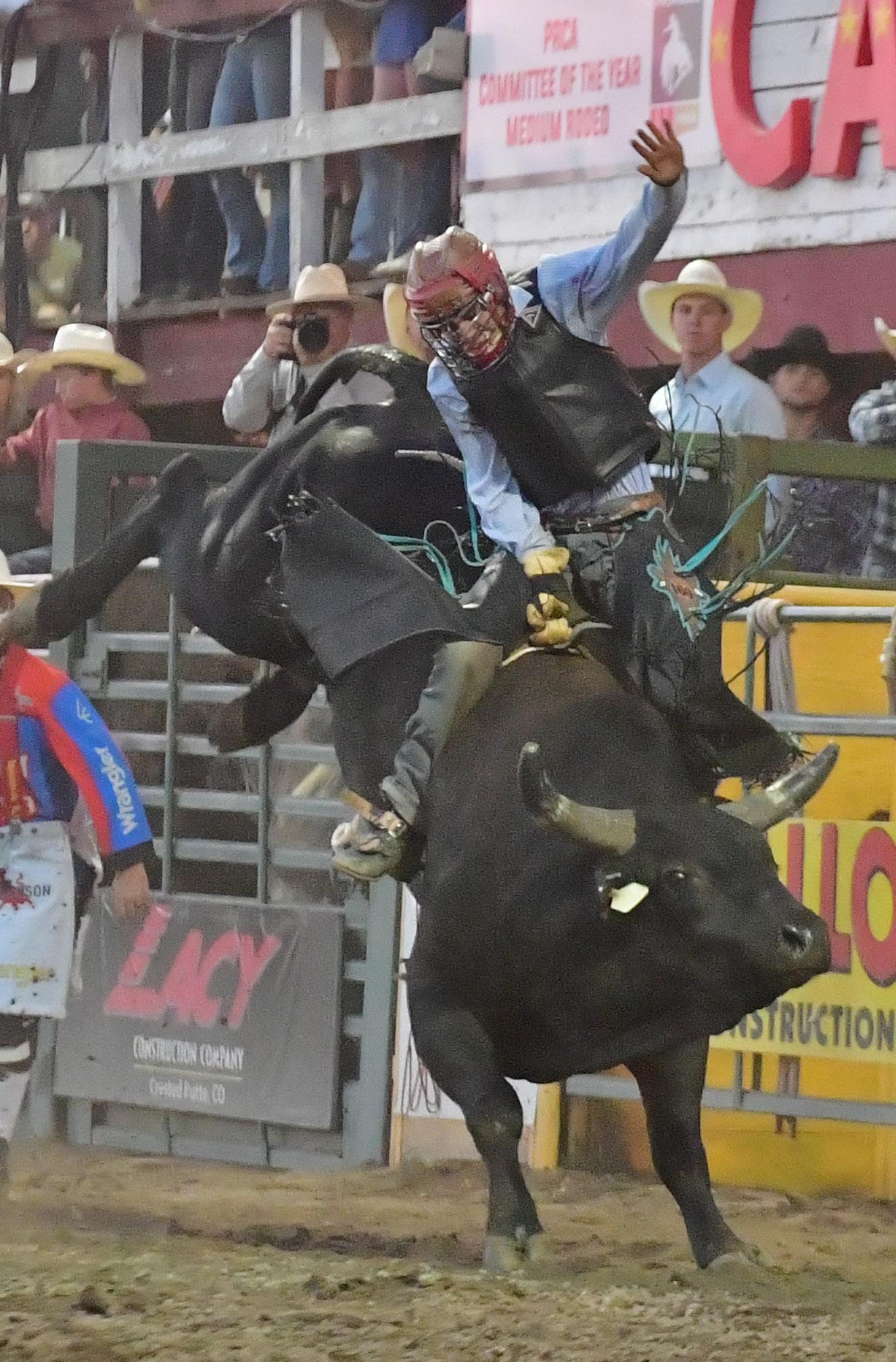
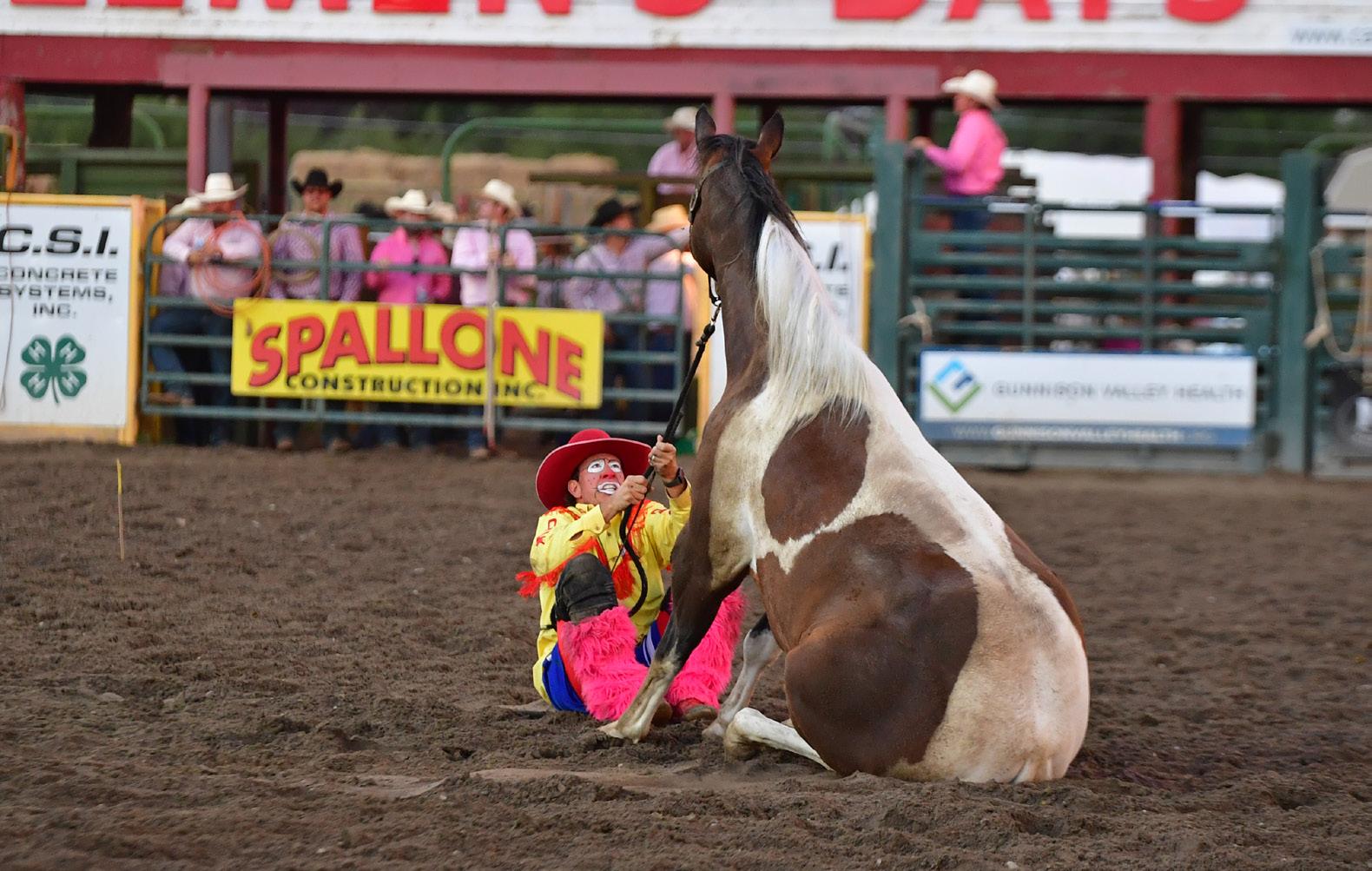
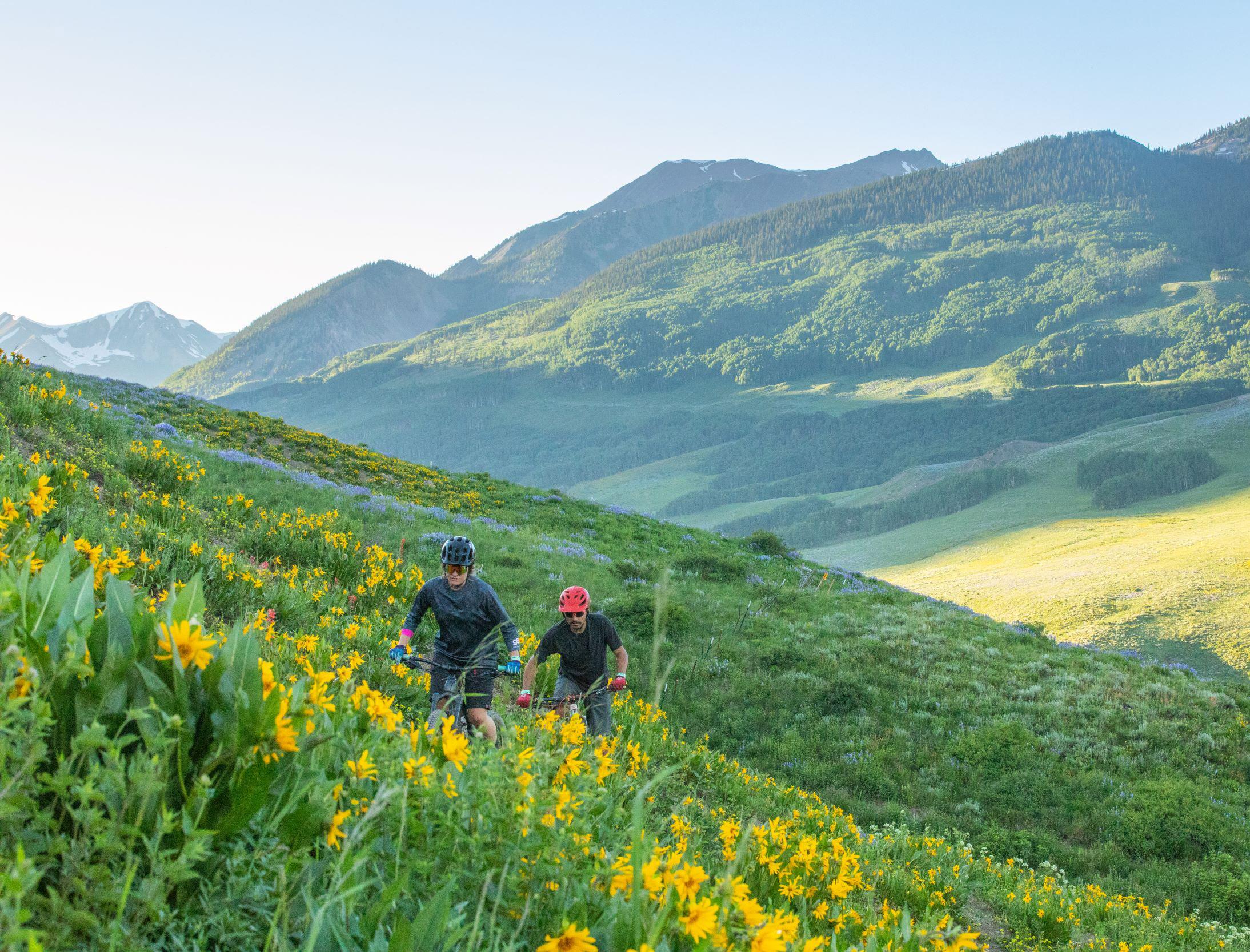



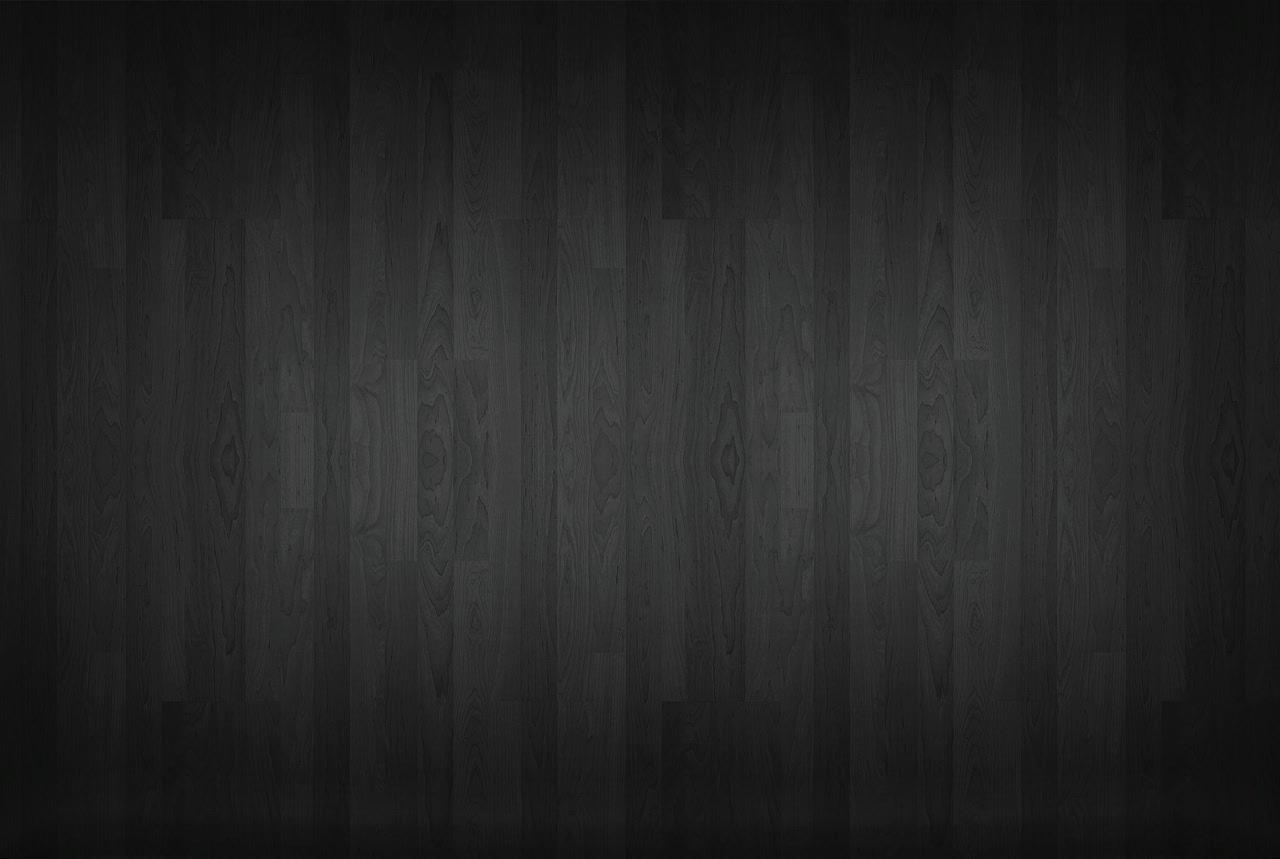



Law of the Rockies is a full-service law firm with offices in Gunnison and (now) Crested Butte. Law of the Rockies’ attorneys Marcus Lock, Jacob With, Kendall Burgemeister, and Daniel Spivey represent clients in Gunnison County and across Colorado in real estate law, business law, civil litigation, water law, estate planning, and more. We are honored that you voted JACOB WITH as BEST LAWYER in the



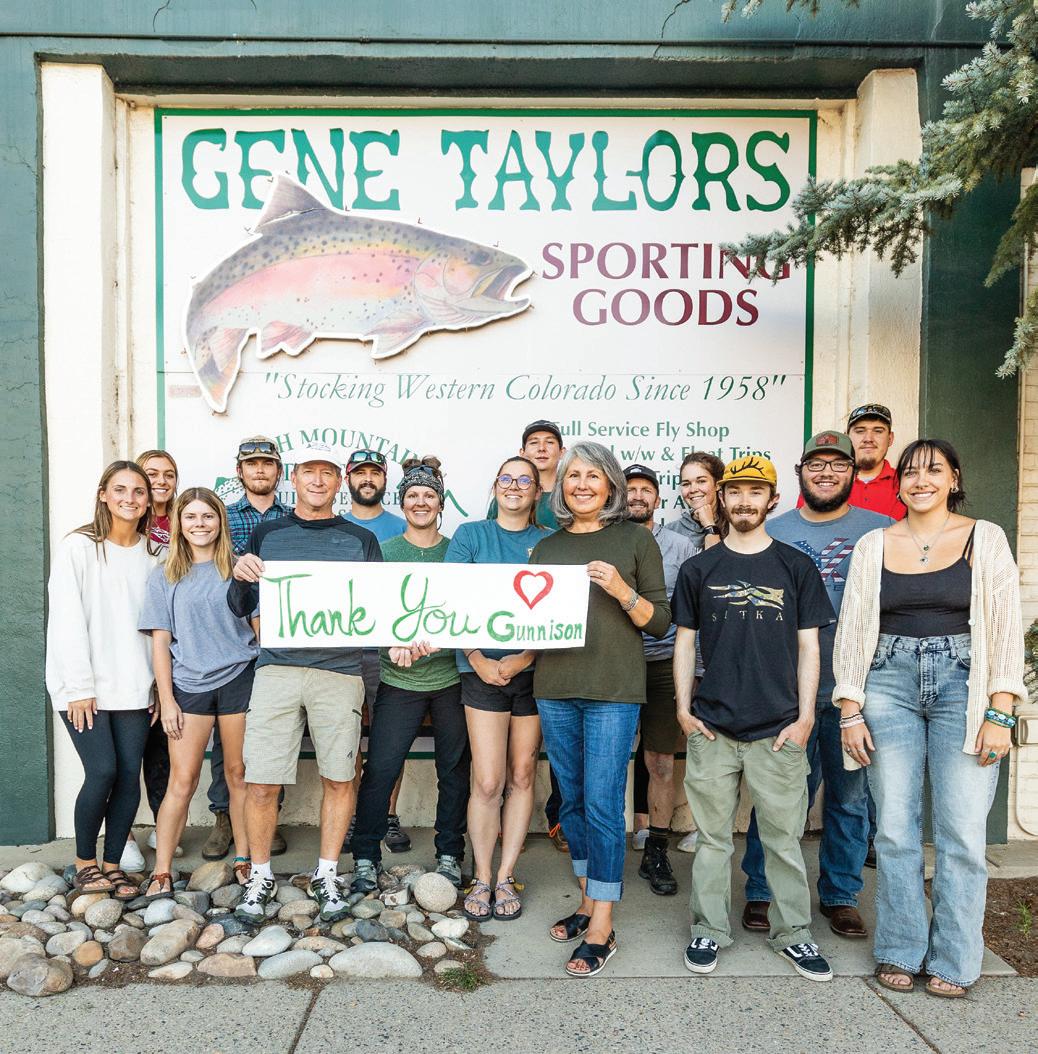

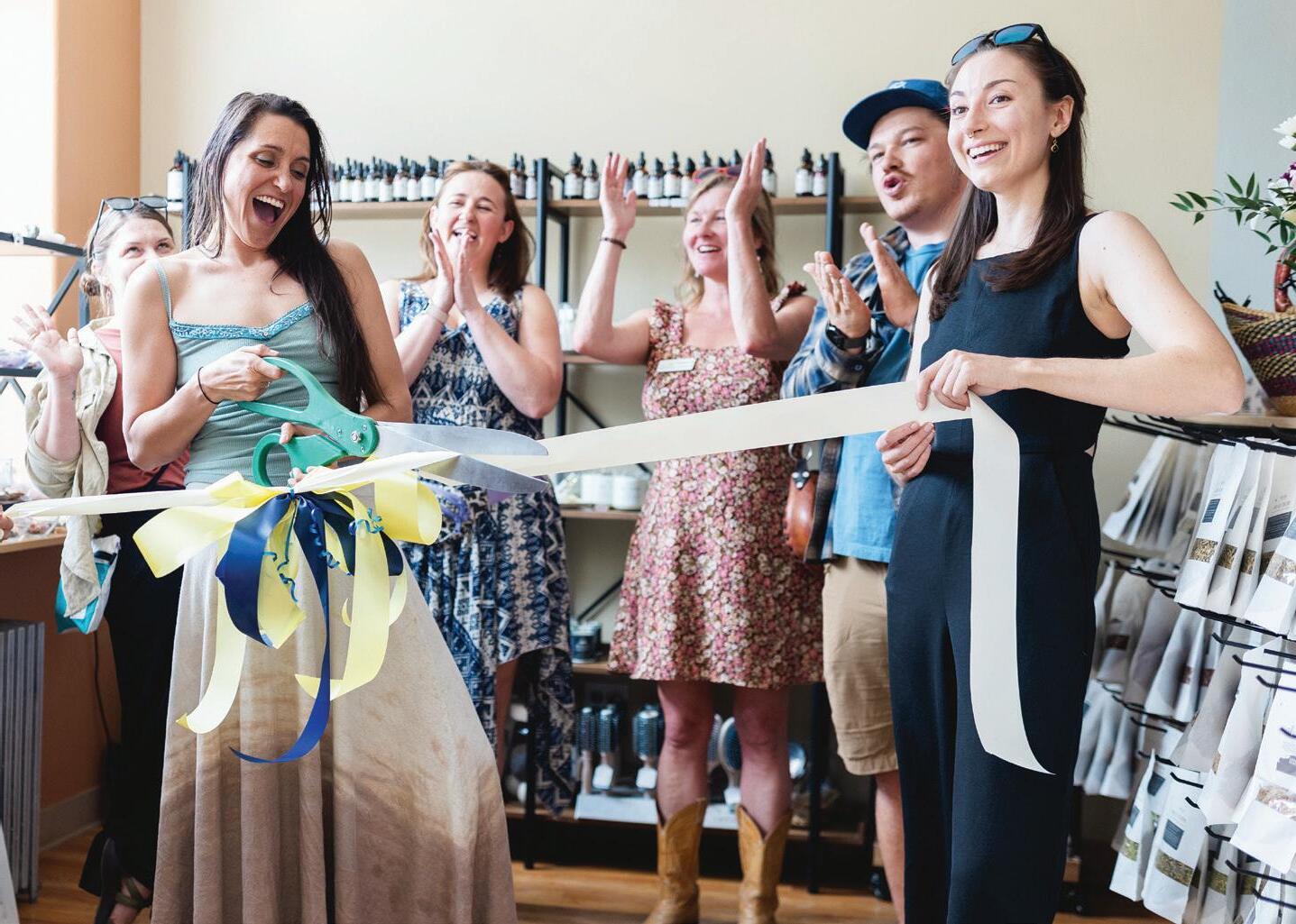
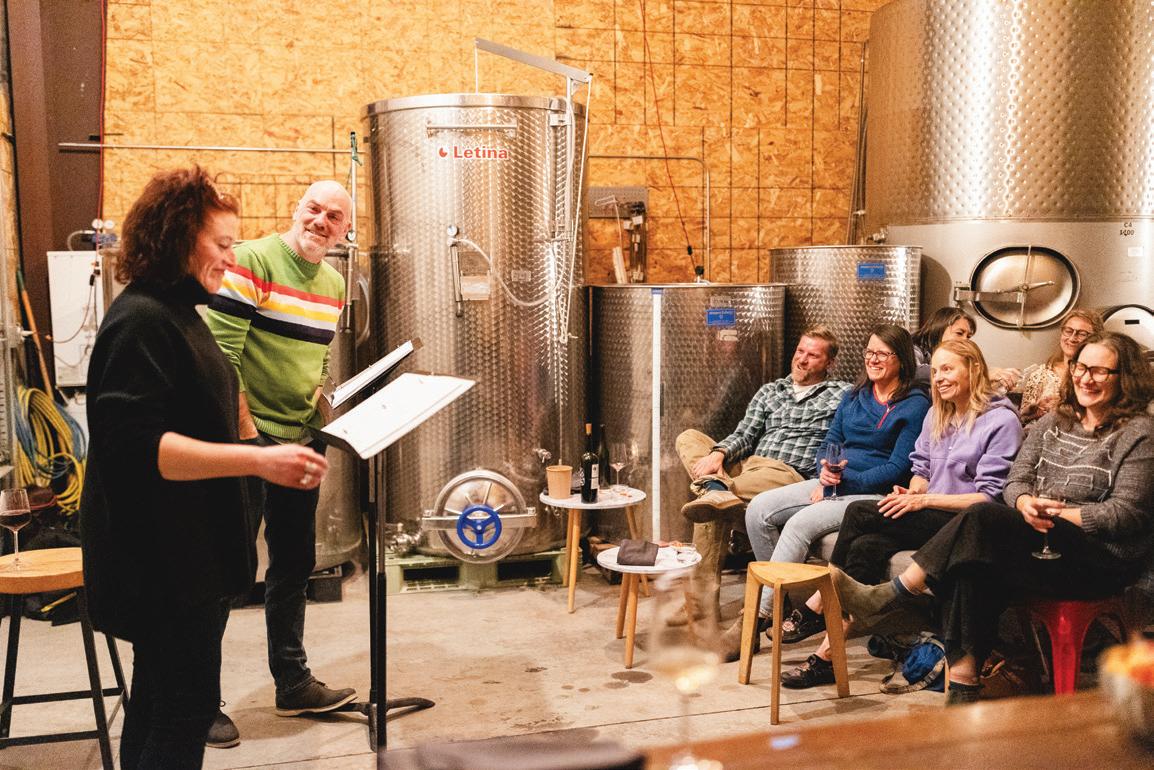

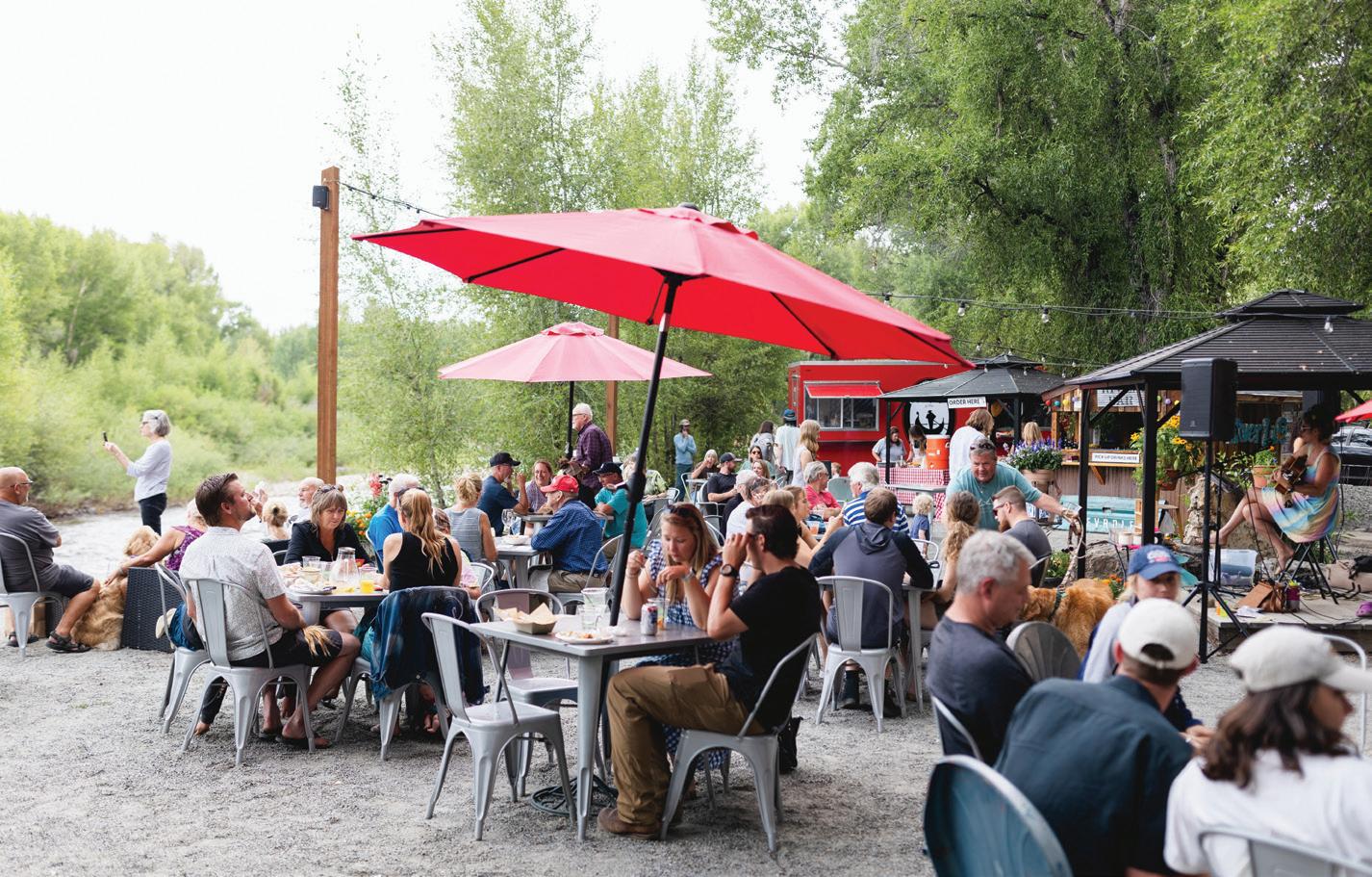




BEST AUTO REPAIR SHOP:

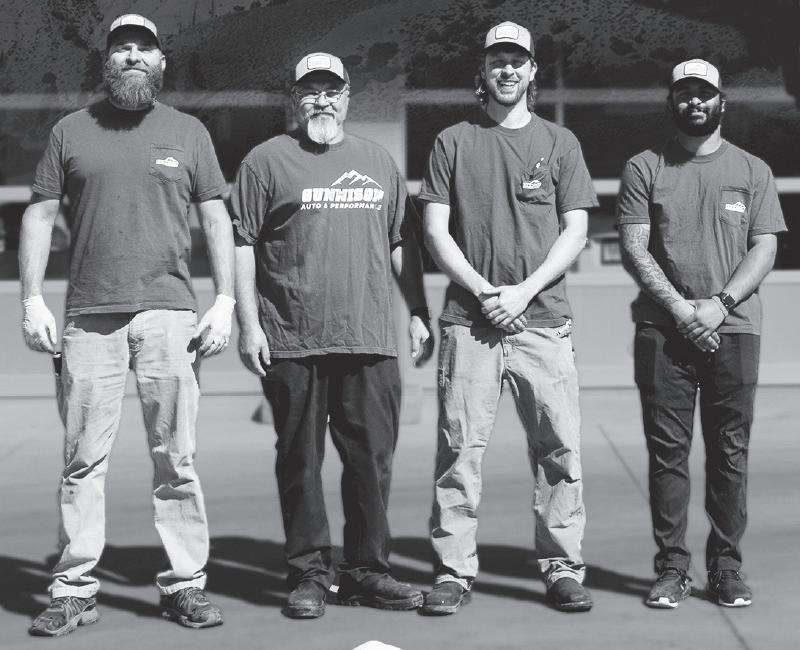
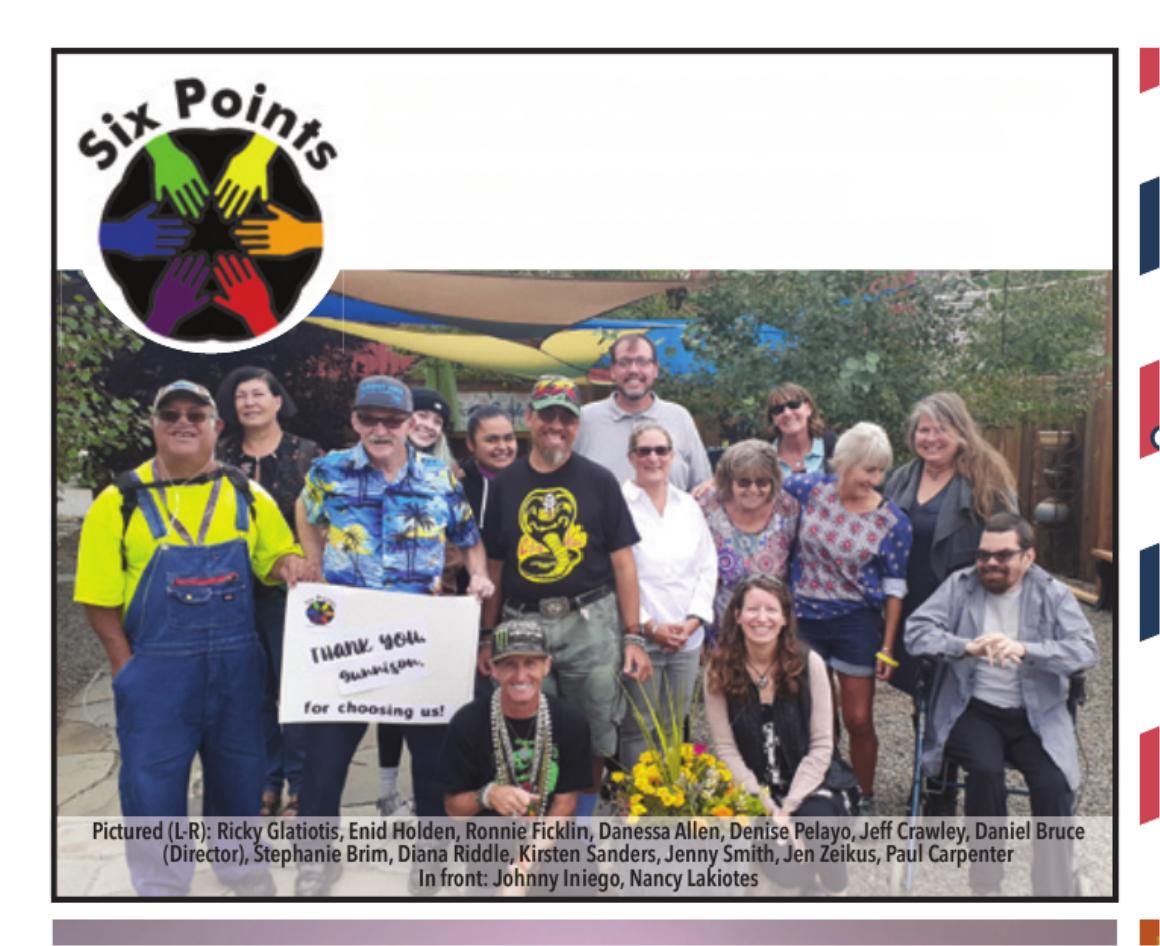
BY ALAN WARTES, GUNNIBIZ
(Publisher’s note: This is an excerpt from an episode of a new business-focused Gunnison Country Times podcast called GunniBiz. It has been edited for length and clarity. Follow the link below to listen to the whole conversation.)
Before we get into the “nuts and bolts” of running your business tell me a little bit about yourself. Where do you come from?
I was born in Dallas, Texas, and then moved to a little town called Plainview, Texas. The earliest memories I have were from Plainview. I went all through school in Plainview. Went to college at Wayland Baptist University for about two years studying business. I wasn't a big fan of college. I dropped out. I liked working on cars, so I moved to Lubbock and went to trade school there. That's where I got my beginnings.
How did you wind up in Gunnison?
I just started looking for jobs in Colorado because I wanted to be somewhere where I could go enjoy the outdoors and snowboard as much as I could. Me and a buddy of mine took a trip to Denver, and kind of drove around different places throughout Colorado. We did some interviews while we were there, and then on the way back home, got a call from one of the shops in Denver, and they offered me a job, and I took it. I went back home, packed all my stuff and drove right back to Denver, and that was it. I was in Denver for a couple years, and then moved to Blackhawk. After one year, I was living with two buddies of mine. One of them went back to Texas, the other went back to Denver, and I didn't really want to do either

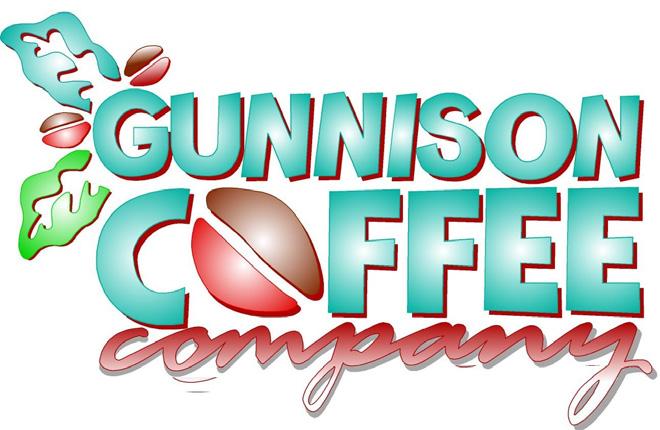


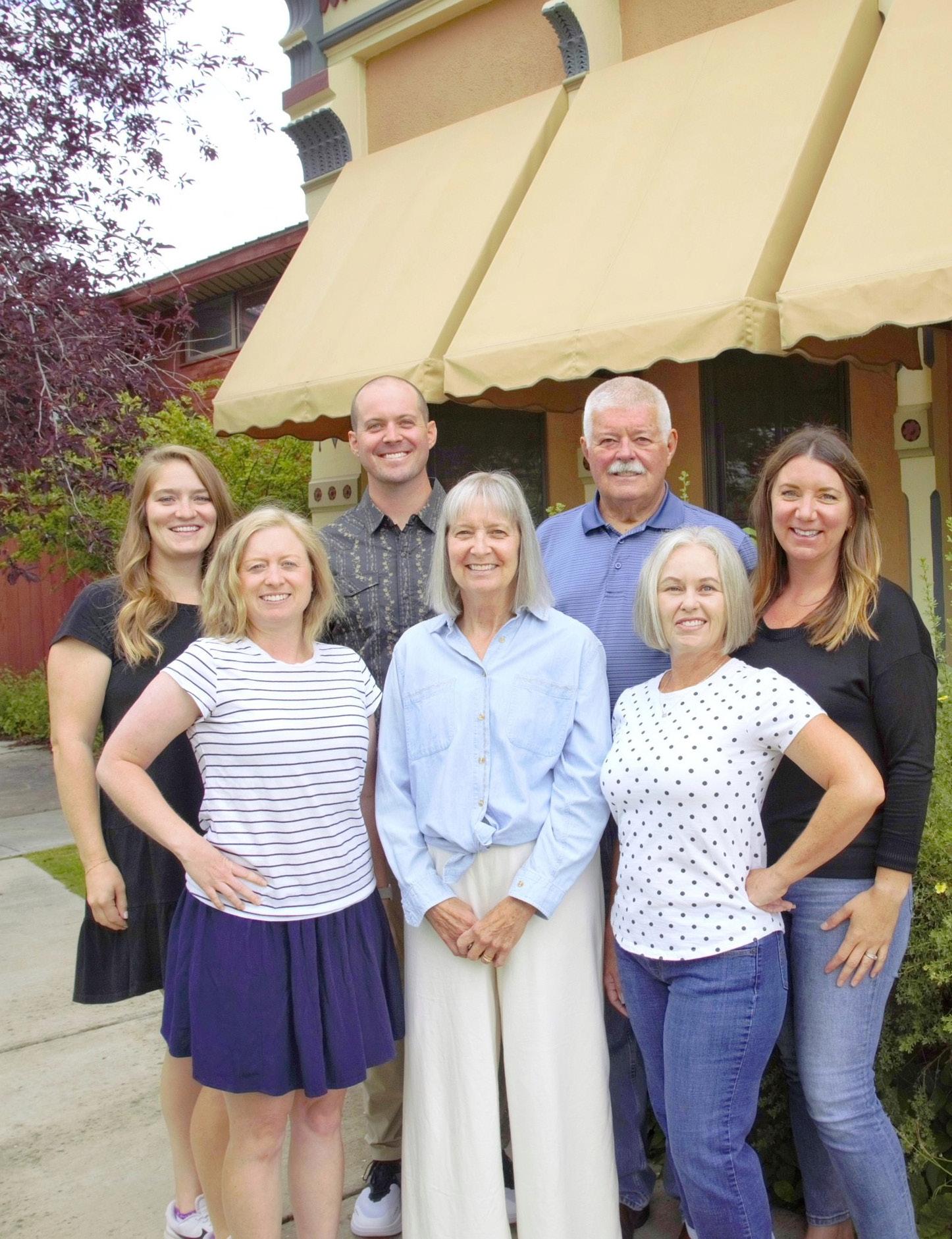
of those two things. So I started putting out feelers in other places, and got an offer from a shop here in town. I took that and moved here, and love it.
What is it about working on cars that you love so much?
I just like working with my hands. I like fixing things. When I was a senior in high school, my parents took me to a center in Dallas to get aptitude tested. They tell you what you're naturally good at, not necessarily what you'll enjoy, but just what you're naturally good at. And I tested highest in working with my hands. One of my friend’s dad built cars in his spare time. He didn't just work on them, he built them. I used to just love going over there and hanging out. So whenever I got the results back from the aptitude test, they suggested that I go into some sort of architectural or type designing and building. I said, “Well, I like cars more. What about that?”
What made you want to own your own shop?
That was the goal from the get go. When we got the aptitude test results, I sat down with my parents and kind of just talked over some things. They were like, well, what's your what's your end goal? Where do you see yourself in 20 years? I said, Well, I want to work on cars and, one day, I want to open or own my own shop.
I think I should have your parents in here and talk to them. They're amazing. I have two brothers and a sister as well, and to every single one of us they said, “Do what makes you happy, and then money will come later.” They're both business owners. My dad owns a State Farm insurance agency back in Plainview. And he owns a cleaning company where they just sell cleaning products like schools and hospitals and things like that. My mom started her own PR firm, like an advertising business, in the spare bedroom of our house, and built it up over 14 or 15 years working 80-hour weeks.
You said earlier you think it’s important for an auto shop to have a good reputation. What does that mean to you?
As with anything else, it's all customer relations. Auto shops, out of the gate, just don't have a great reputation in general, not specific auto shops. I would just say mechanics in general. You get a couple bad apples, and that kind of spoils it for a lot of people. But when I bought it, Gunnison Auto already had a great reputation. So it's just coming in and trying to maintain that, being completely open and
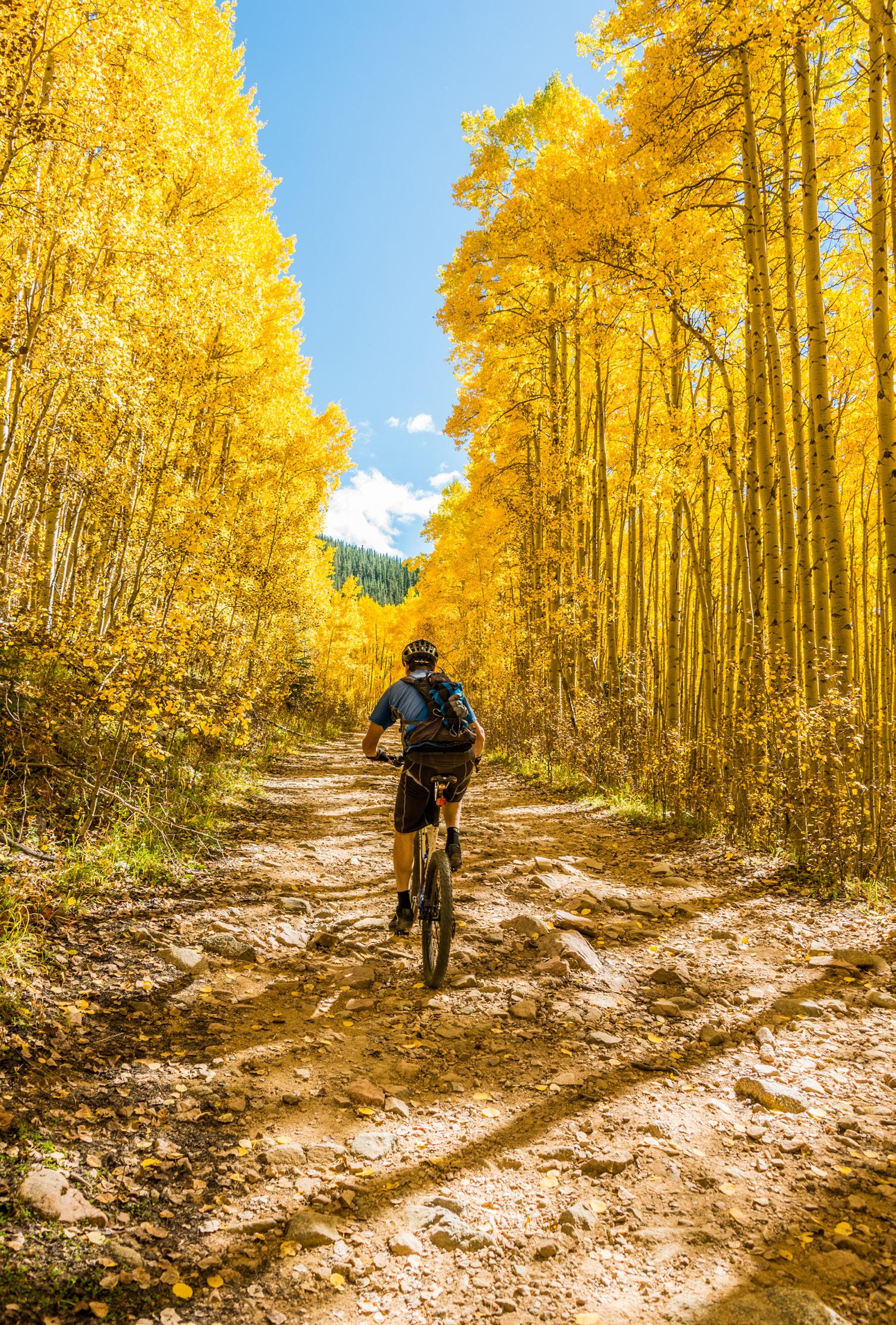
honest with customers. Not everything's going to run as smooth as you wish it would. Things are going to happen sometimes, but as long as you're open and honest with them 100% throughout the whole process, it definitely makes it easier, and people understand.
Are there things about owning a business in a small town that you particularly like?
I really like just getting to know our customers. And then you see them all over the place. You see them at the grocery store. You'll see them there while you're out eating dinner and this and that, and say hi and how you doing, and how's your car doing, still running? You probably don't get that as much if you're, you know, running a business in a bigger town. Just seems more personal, between you and your customers.
One thing a lot of business owners report these days is difficulty finding staff. Is that something you struggle with as well?
Absolutely. As of the last two months, I've been fully staffed, so that's been amazing. But it was not not easy to get there. In the beginning I spent most of the time [during the day] answering the phones, trying to build estimates, things like that. And then at 5:30 when we close, I would start pulling cars in the shop, and that's when I would get to work. So for the first five or six months, I was working like that. There's not near as many people getting into the industry, and people have been talking about that for years now. It's only getting worse. I think college was pushed on so many kids, that if you don't go to college, you're not going to be successful. That's what makes it hard, just the lack of options, lack of people out there willing to fix cars or wanting to fix cars.
Follow the link below to listen to the rest of the conversation.

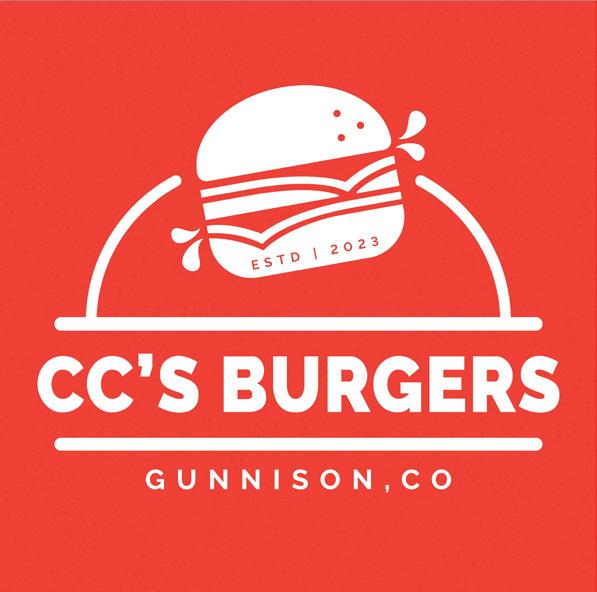








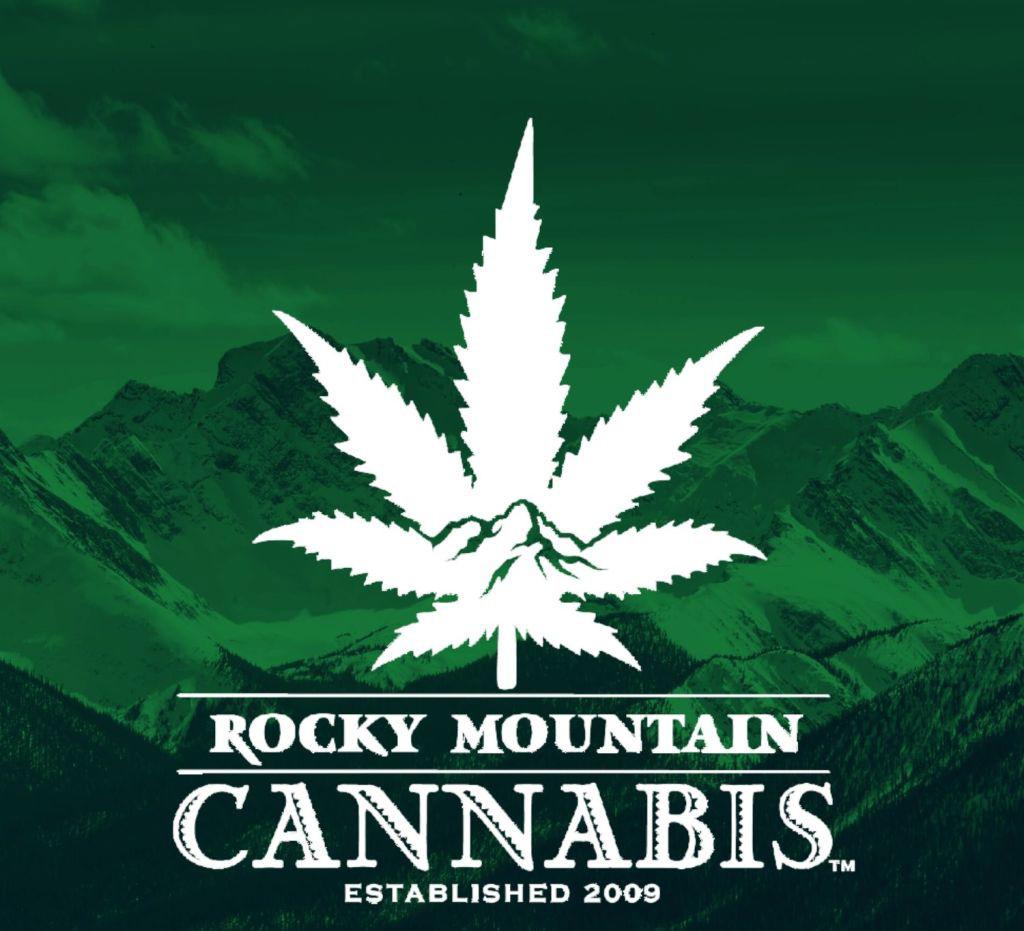
THE BEST G unnison OF
Best Restaurant
Best Food Truck
Best Coffee Shop
Best Cocktails
Best Happy Hour
Best Breakfast
Best Pizza
Best Mexican Food
Best Burger
Best BBQ
Best Vegetarian/ Vegan Food
Best Steak
Best Wings
Best Dessert
Best Sandwich
Best Salad
Best Takeout/ Delivery
Best Chef
Best Bartender
Best Server
Best Barista
Best Restaurant Service
Best Outdoor Dining
Best Family Dining
Best Place to Watch Sports
Best Clothing Store
Best Home Furnishing Decor
Best Retail Store
Best Retail Sales Person
Best Salon
Best Barber
Best Hardware Store
Best Bank
Best Bike Shop
Best Outdoor Retailer
Best Art Gallery
Best Gift Shop
Best Liquor Store
Best Dispensary
Best Automotive Repair Shop
Best Automotive Mechanic
Best Dentist
Best Doctor
Best Optometrist
Best Orthopedic Clinic
Best Non-Traditional Medicine Practitioner
Best Massage Therapist
Best Yoga Instructor
Best Veterinary Clinic
Best Church
Best Realtor
Best Lawyer
Best Outfitter
Best Fishing Guide
Best Hotel/ Lodging
Blackstock Bistro
CC’s Burgers
Mochas Coffee House and Bakery
Blackstock Bistro
Blackstock Bistro
W Cafe
Pie-Zan’s Pizzeria
Anejo’s Bistro and Bar
Powerstop
5B’s BBQ
Vegan AF Food Truck
Ol’ Miner Steakhouse
Powerstop
Cake Me Away
The Dilly Deli
Mario’s Pizza and Pasta

Best Cleaning Service
Best Handyman Service
Best Builder/ Contractor
Best Insurance Agency
Best Financial Advisor
Bets Accountant
Best Graphic Design/Marketing
Best Pet Boarding
Best Local Photographer
Best Artist
Best Locally Made Product
Best Local Band/ Musician
Best Local Event
Best Teacher
Best Childcare Provider
Best Non-Profit
Dr. Lauretta Garren - Gunnison Valley Family Physicians
Quick Draw Cleaning
Go Two Handymen
Christopher Klein Construction
Shondeck Financial Services and Insurance
Lacy Henry - Edward Jones
Stice & Company
RoShamBo
Critter Sitters
Matt Burt Photography
Colt Maule
GSO Fishing
Easy Jim
Cattlemen’s Days
Tracy Archuleta & Maren Eberly
Tenderfoot Family and Child Development Center
Six Points
BEST CHURCH: BETHANY CHURCH,
TOM BURGGRAF

BY ALAN WARTES, GUNNIBIZ
(Publisher’s note: This is an excerpt from an episode of a new business-focused Gunnison Country Times podcast called GunniBiz. It has been edited for length and clarity. Follow the link below to listen to the whole conversation.)
How did you come to be pastor of Bethany Church?
We have lived here for 28 years. We moved from New Orleans, and I came to work at the Western Foundation, and spent 26 years in the same job there. I love the people there. Love the university. But 18 years ago I was leading worship at a different church down the road, Community Church. Bethany lost its pastor kind of suddenly, and I think they called everybody they knew that had any kind of spiritual background. Nobody was home. And then they reached me and realized I had been a seminary dropout in New Orleans. And Steve Morehouse was pastor over at Community at the time, and when I said they would like me to fill in he was very grateful to let me go. I think I was more enthusiastic than talented as a worship leader. So I started filling in on weekends at Bethany on the side, while I was working at Western, and they ran a search and it didn't go anywhere. And they ran another search and didn't go anywhere. And then they asked me if I wanted to stay. I said, you really don't want me. They said, yes, we really do.
Why did you say that to them?
I just am aware of my desperation for Jesus, right? I am. I don't get to be the pastor because I’ve got it all together. I get to be the pastor because I know how desperate I am, and I can lead others to be desperate.
Desperate in what sense? Why do you choose that word?
Because everything that I have is a gift, and I need God for everything that I do, from the mundane to the big stuff, and everything in between. And so in that sense, we connect with other people who are all dependent. We all have different flavors of the same brokenness, and we walk together to the healer.
Why would you think that attitude made you ineligible?
I don't know. I was just trying to talk them out of it. You want to make sure anyway. But that was 18 years ago, so I was bi-vocational for 16 years. Then for the last year and a half, I've been full time at the church. But I am a spiritual mutt. I grew up Catholic in New York and New Jersey. [I was an] altar boy, fell in love with my wife, fell in love with Jesus, got a call to ministry after I was married. I dropped out of seminary when I was trying to do that while working, and God kind of reined me back. It was good.
Bethany Church has been selected for a number of years as Best Church in the People’s Choice awards. Why do you think that is?
We're honored. But I just want to be clear that in our calling, in my desire, in my heart, it is not about making much of Bethany. It's not about making much of me. It's about making much of Jesus, and that's what we want to come through. If Bethany ceases to exist for some reason or another, that's not the big loss. My dad used to say that I was his favorite son. Well, I was his only son. I had three sisters, but if you asked him who his favorite child was, he was too smart to answer that question. Bethany's kitchen table is not big enough for the whole family to get around and eat. So we have different places around different parts of town, in different sections of the family that they can do that under different names. And we're grateful for that, and mindful that if you honor my hand, you are also honoring my shoulders and my head, and we're all part of the same body.

Do you find that to be a common attitude throughout the Christian community in Gunnison?
We love each other. We pray for each other. We have each other on speed dial. Because we love Jesus. We love the people of this city, those who believe like we do, and those who don't. And we want to see them blessed and unburdened. But the idea that we're competing? We are. We're competing with each other against hopelessness, against darkness, against all the things that burden down people.
A lot of people find a message like that very inspiring. And they're thinking to themselves, “Yeah, but I can't pay my bills. I'm having trouble staying in my house because I can't afford to rent or big social issues converge to make life more and more difficult.” What does faith have to offer when people are hurting on that level?
That's a great question. And to separate those two would be tragic, because God doesn't. So as a family of faith, we want to care for one another. If you have a need, that's my need too, whether that be physical, financial, emotional, health wise. As we're able, we extend that beyond the walls of [the church.] You're just going to care about people who believe the same that you do? You're just going to love people who believe? No. Our first goal is to strengthen the [church] family so that we can go beyond those walls. Everybody's got a story of people who are hanging by a thread. We want to be God's hands and feet, a generous safety net. You need food? We got food. You need company? You got me.
It’s well documented that church attendance has been in decline in recent decades? Why do you think that is?
The part that bothers me about that is that we're created to need each other, and so being in regular relationship with God and each other is good, and that is one beautiful way to do that. The part that doesn't [bother me] is I recognize that some part of the church needs to own up to not asking that other question, what about the pain of real life? Now we want to help answer that, but we recognize that the church is also bigger than people who attend the building. It's about relationship, not religion. In that sense, there are some people who are in a relationship with Jesus, that I can only just stand in awe of, who are not part of a local congregation. I don't think where you are on a Sunday morning is this test of where your heart is. But it's got to make us wake up and say, we have an irresistibly beautiful God. How has he become resistible and less beautiful through our reflection?
Follow the link below to listen to the rest of the conversation.

